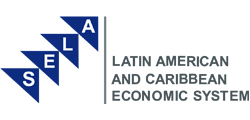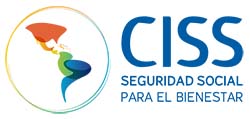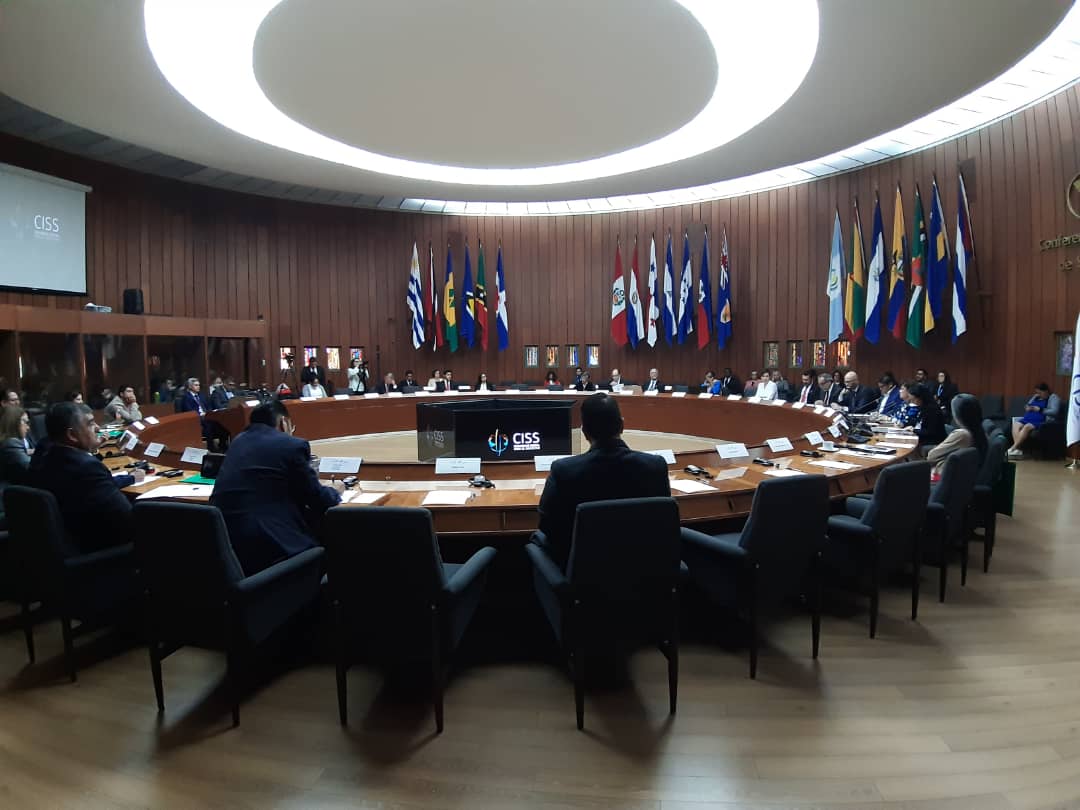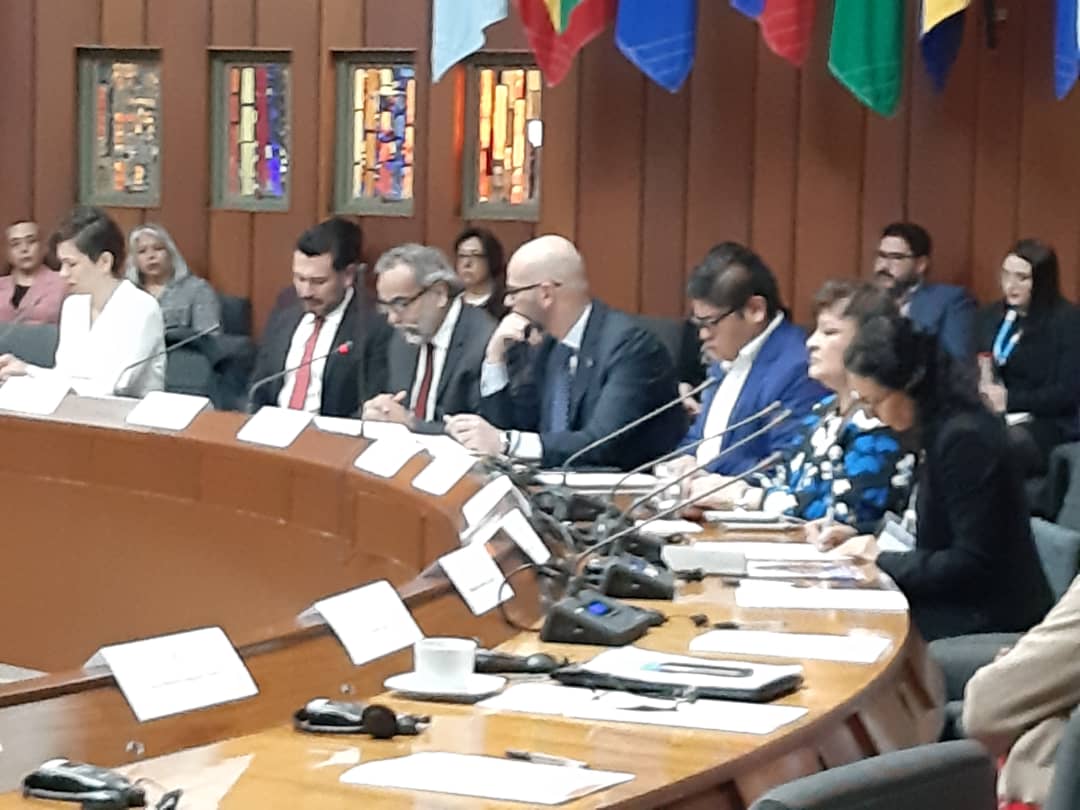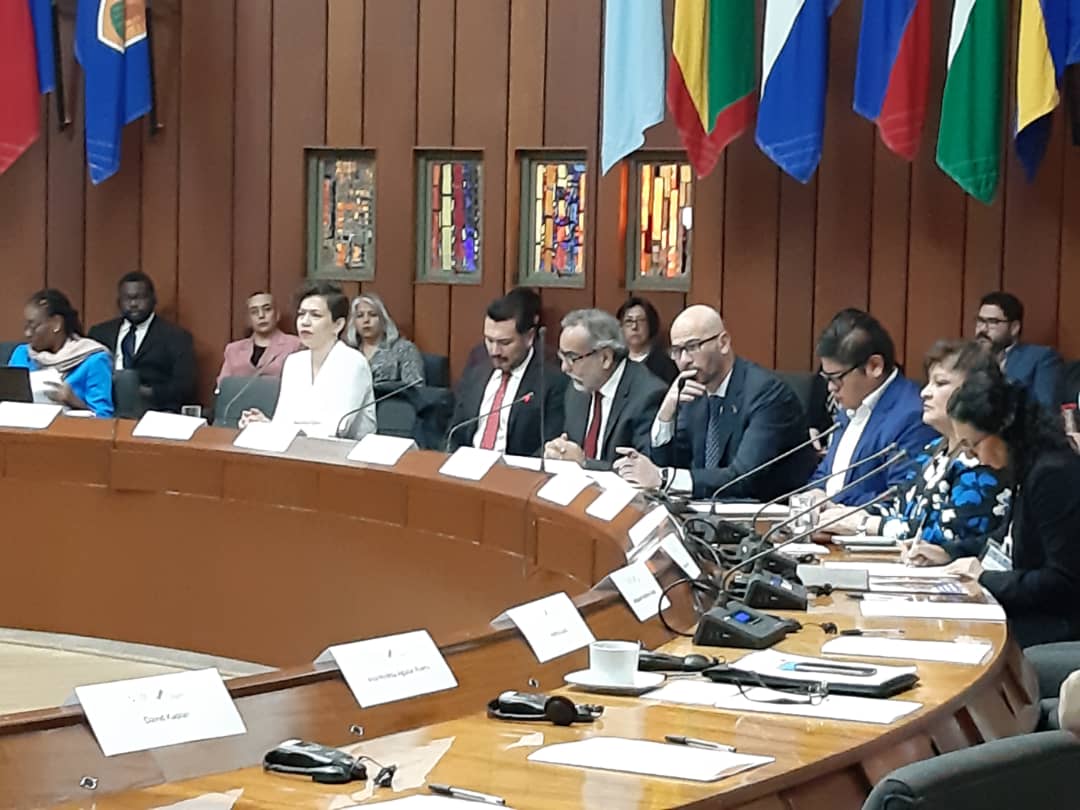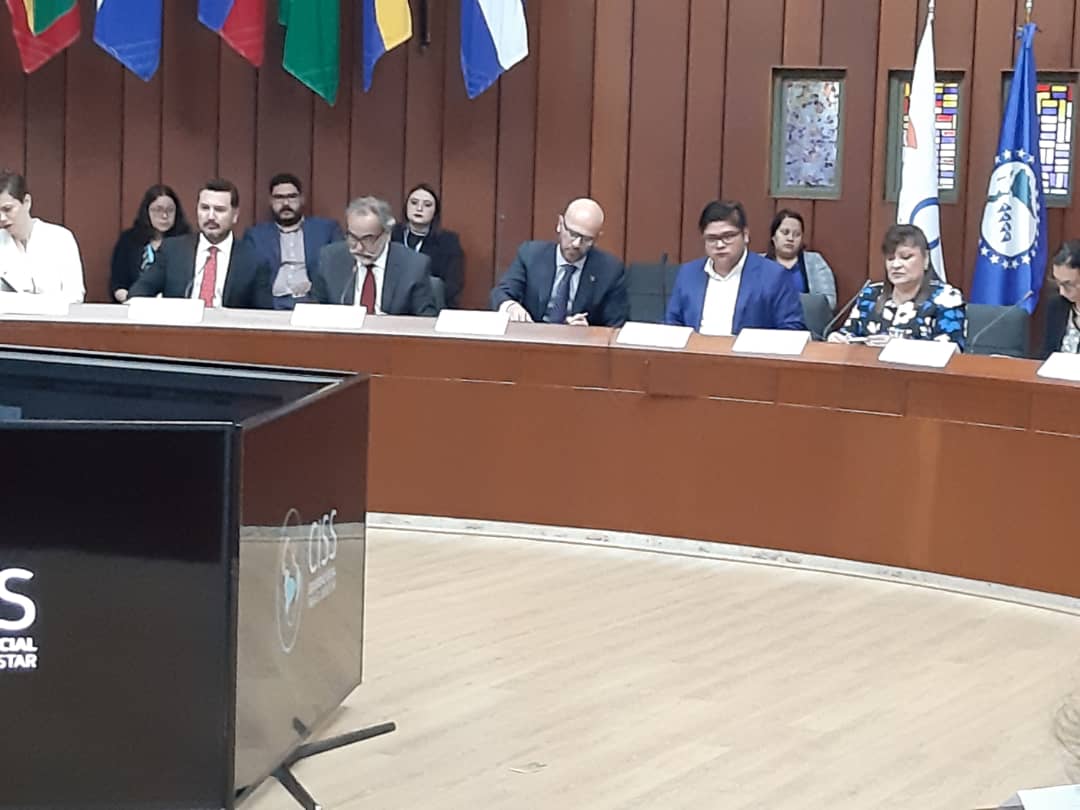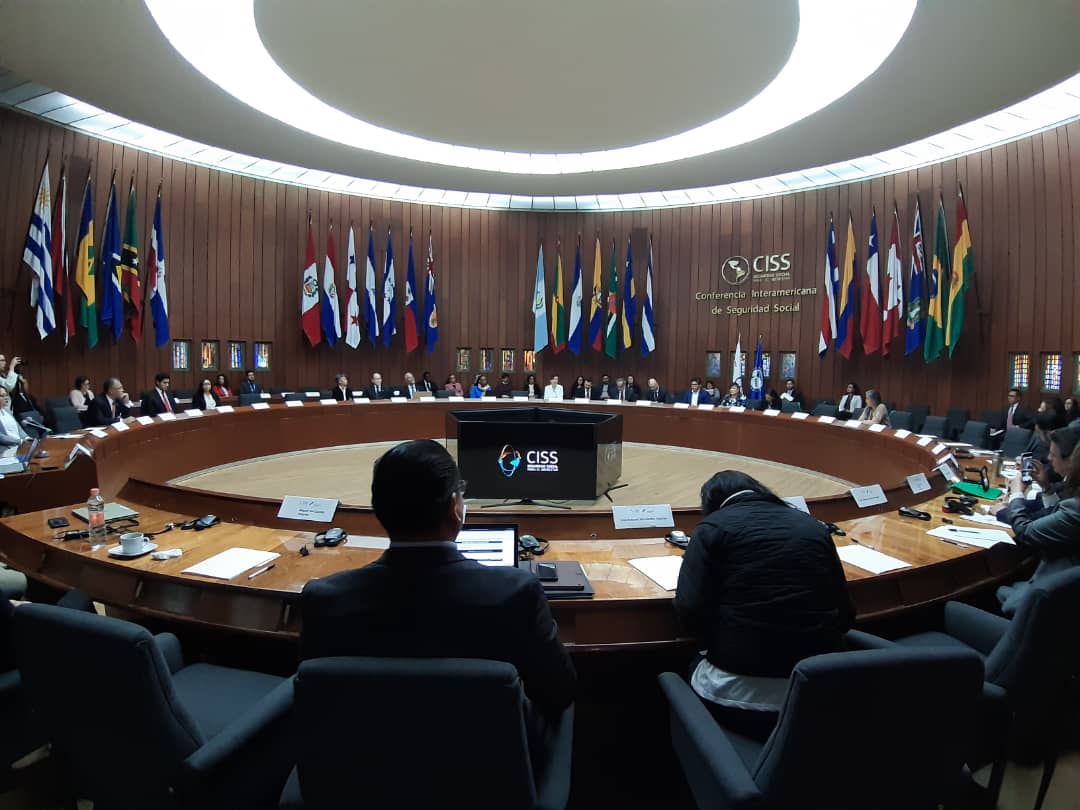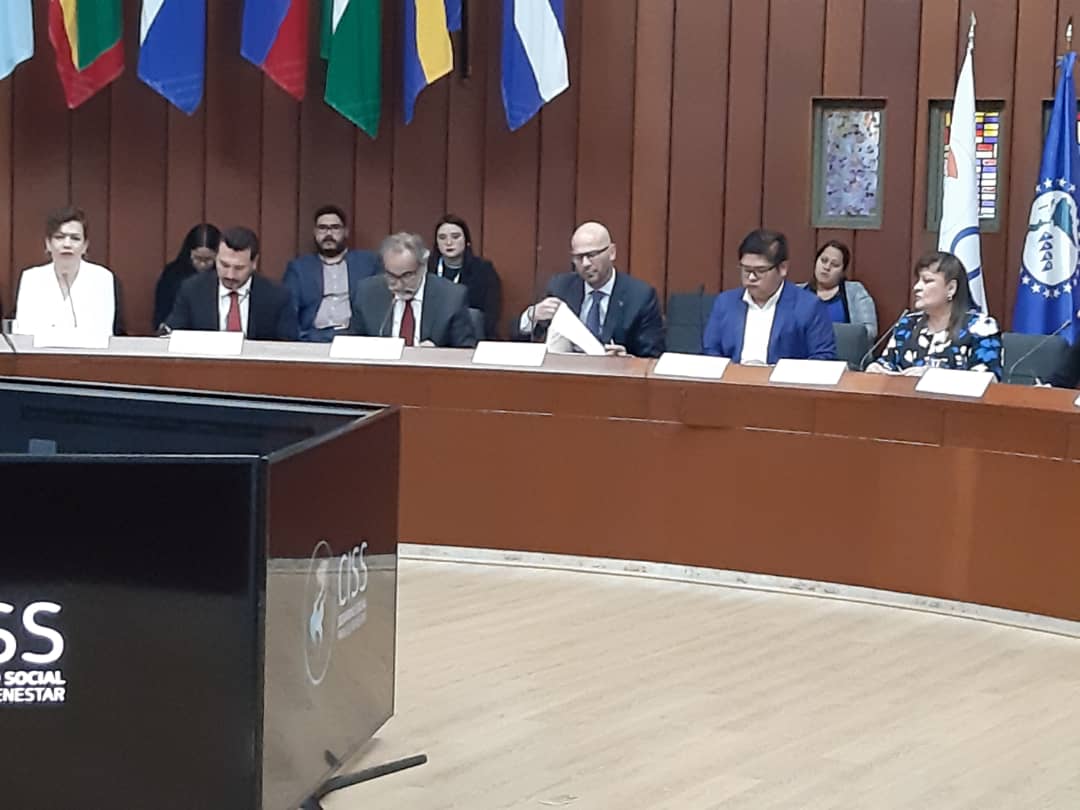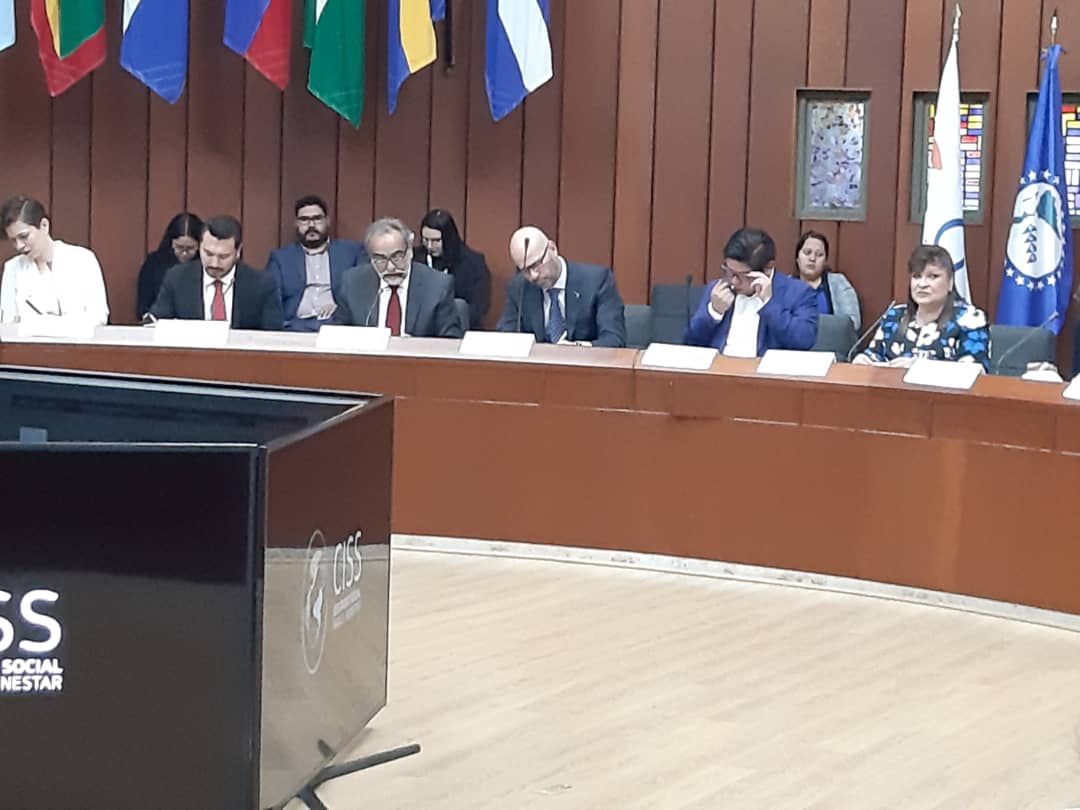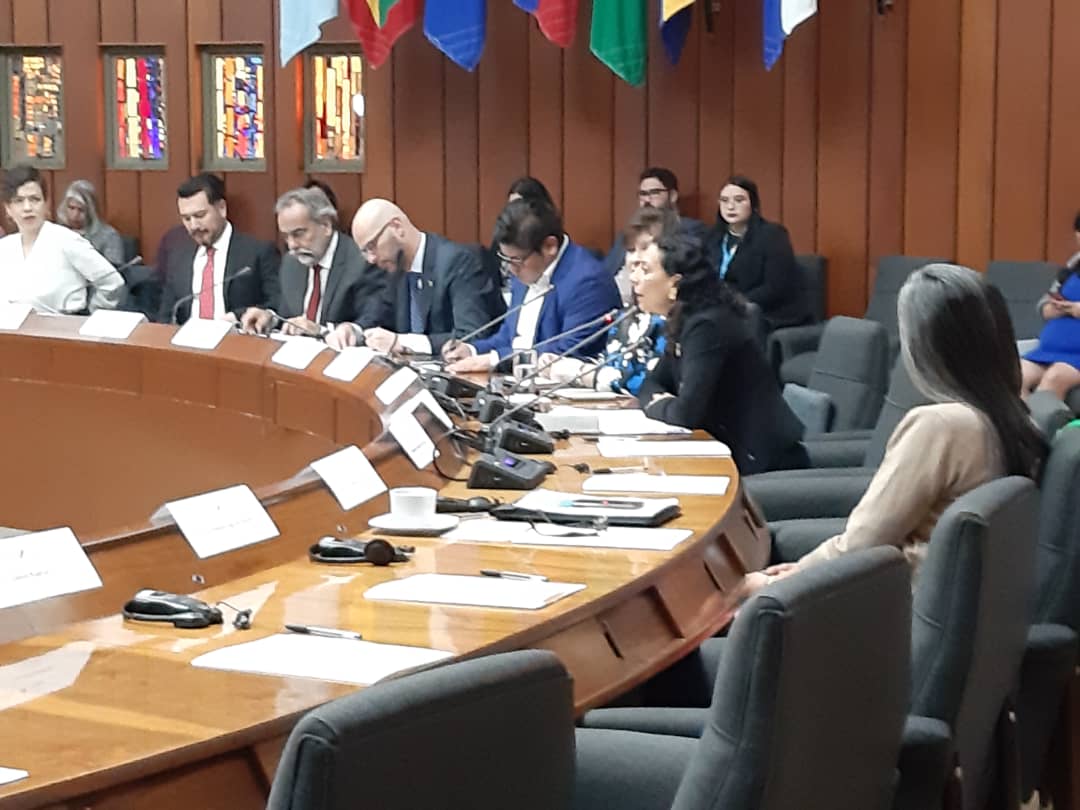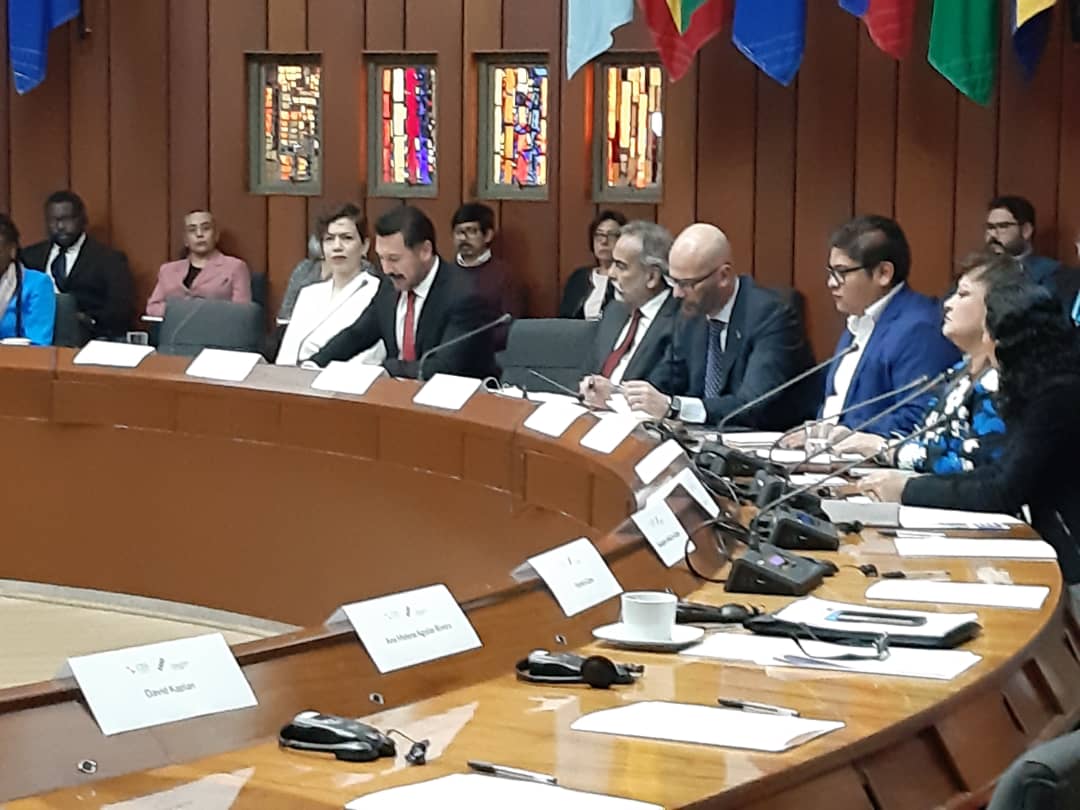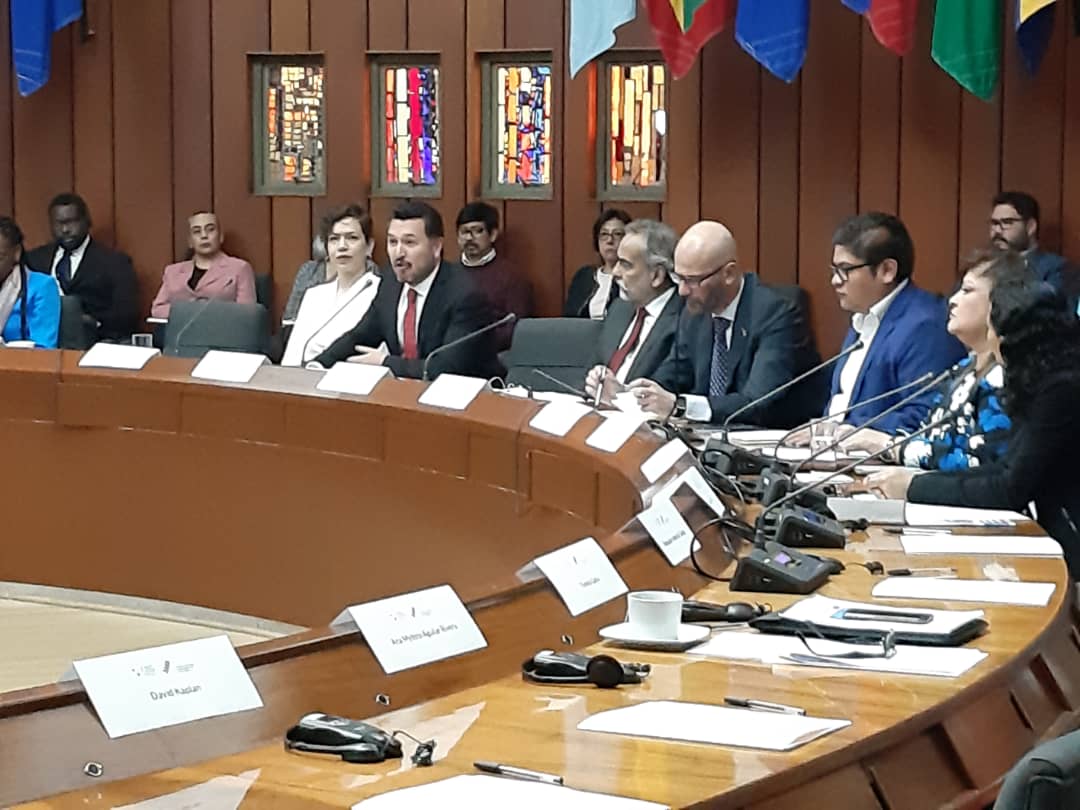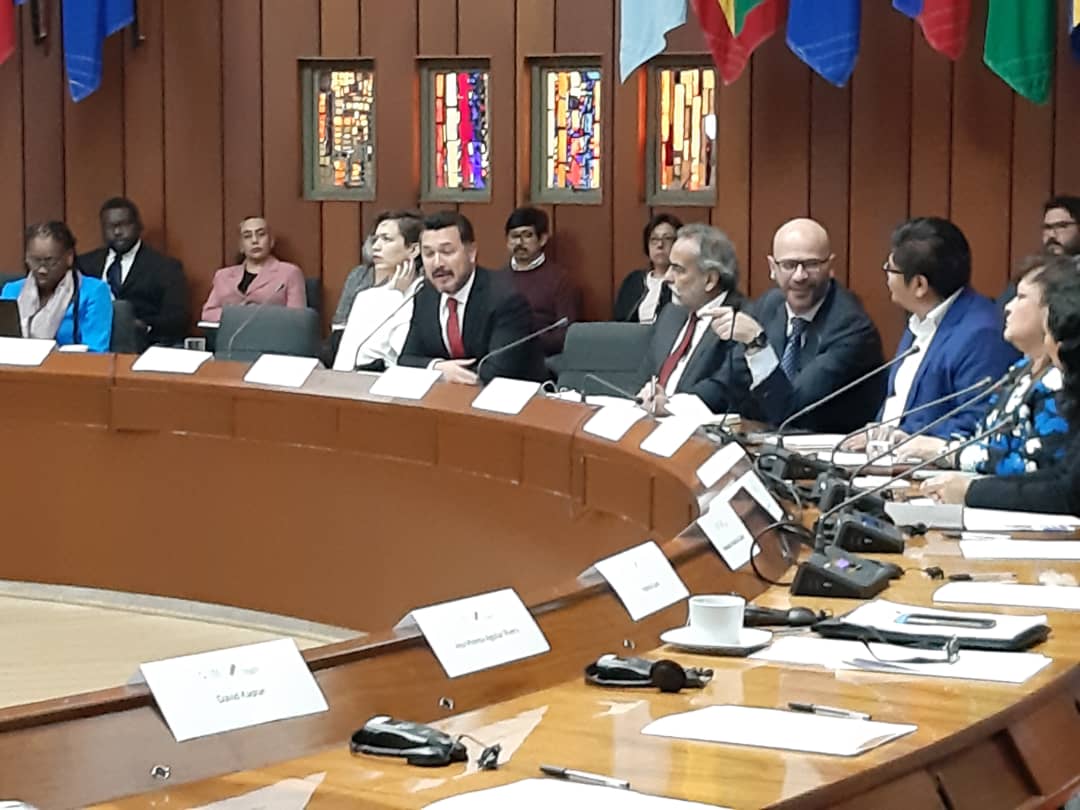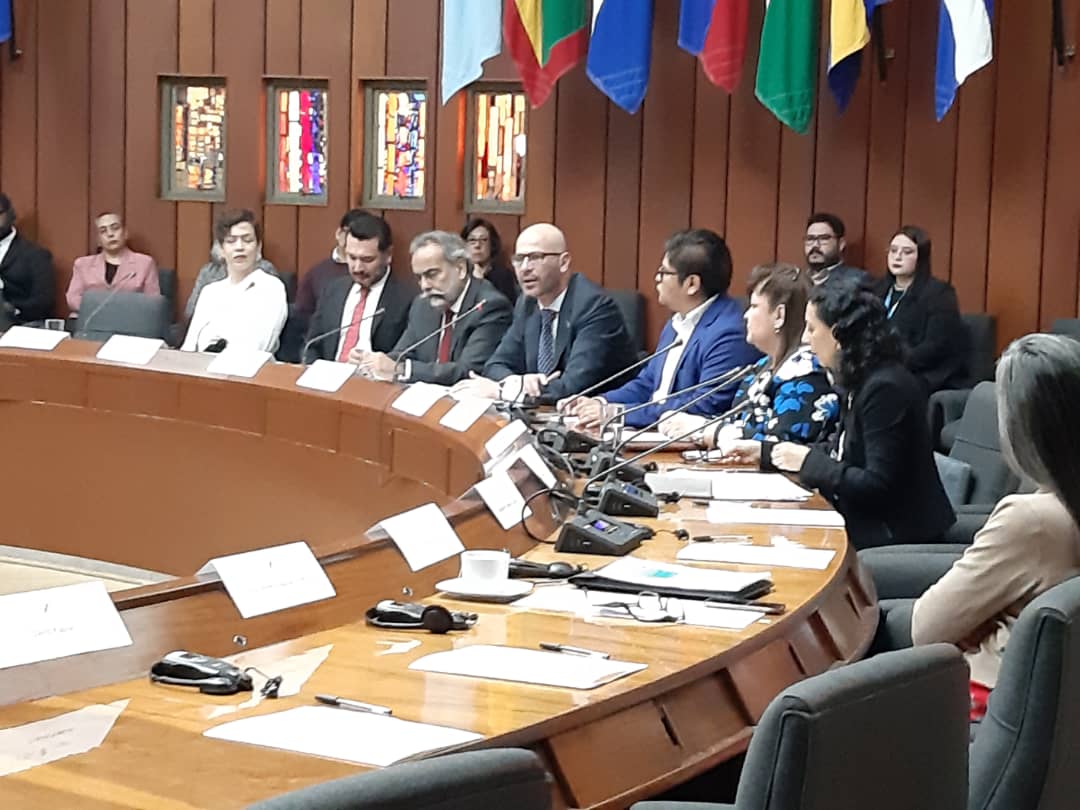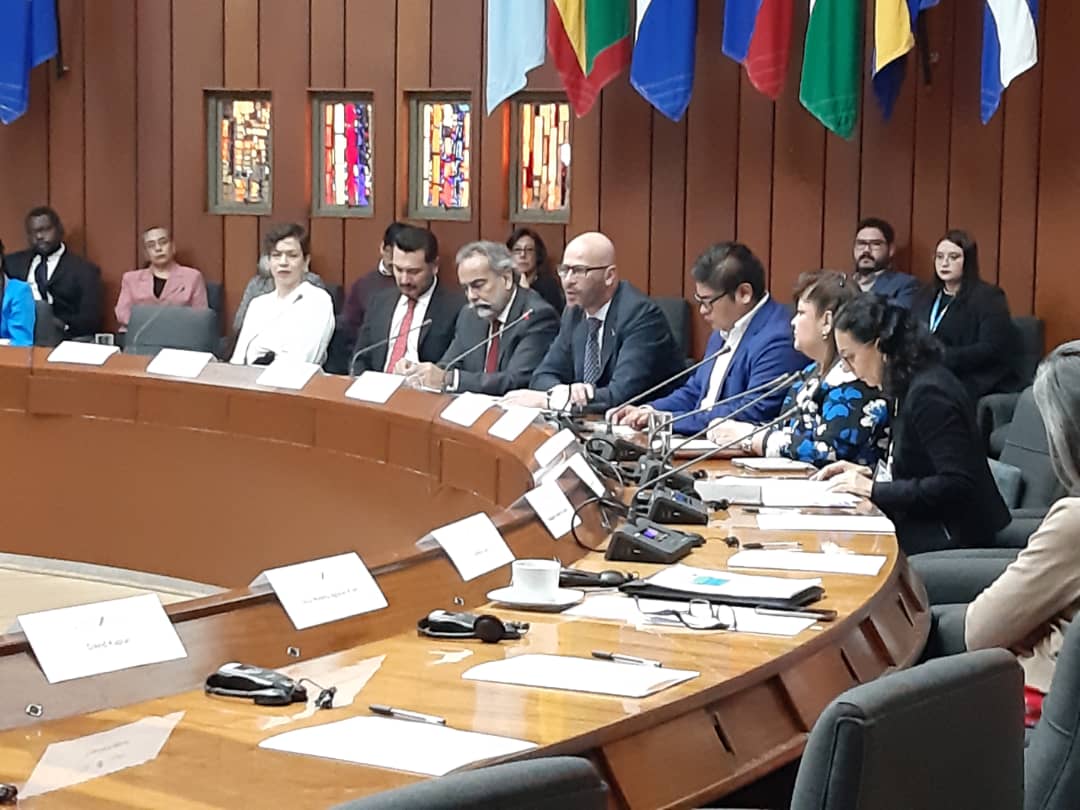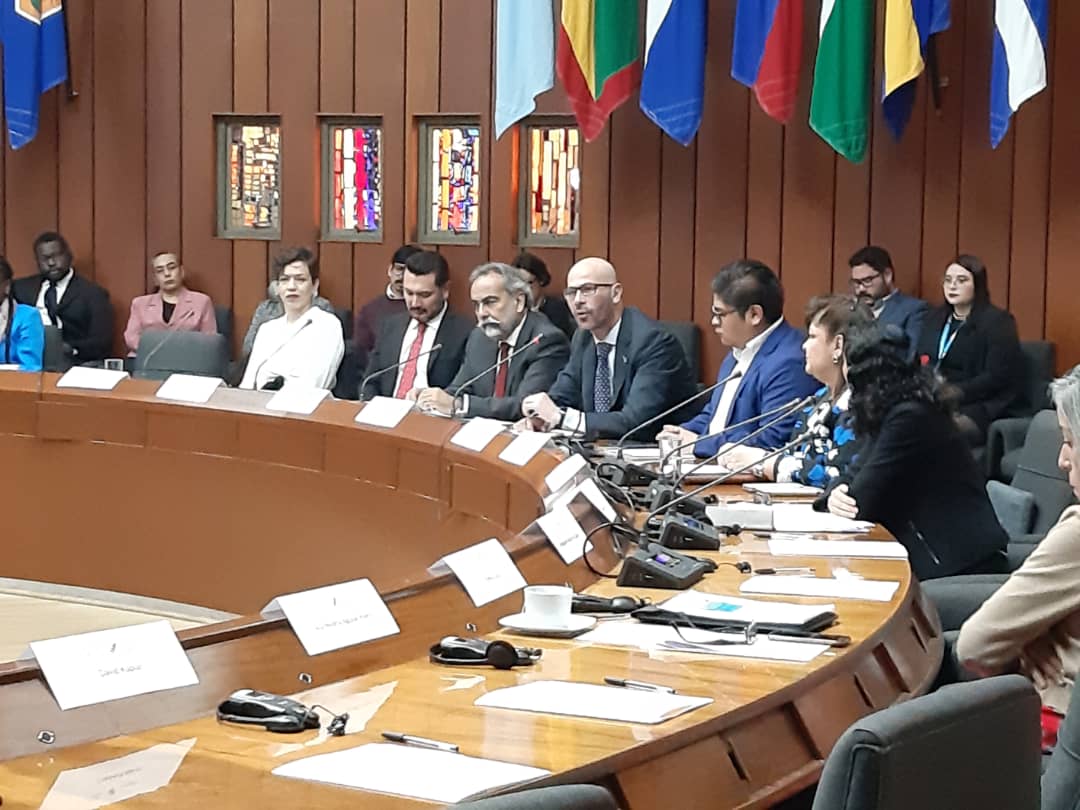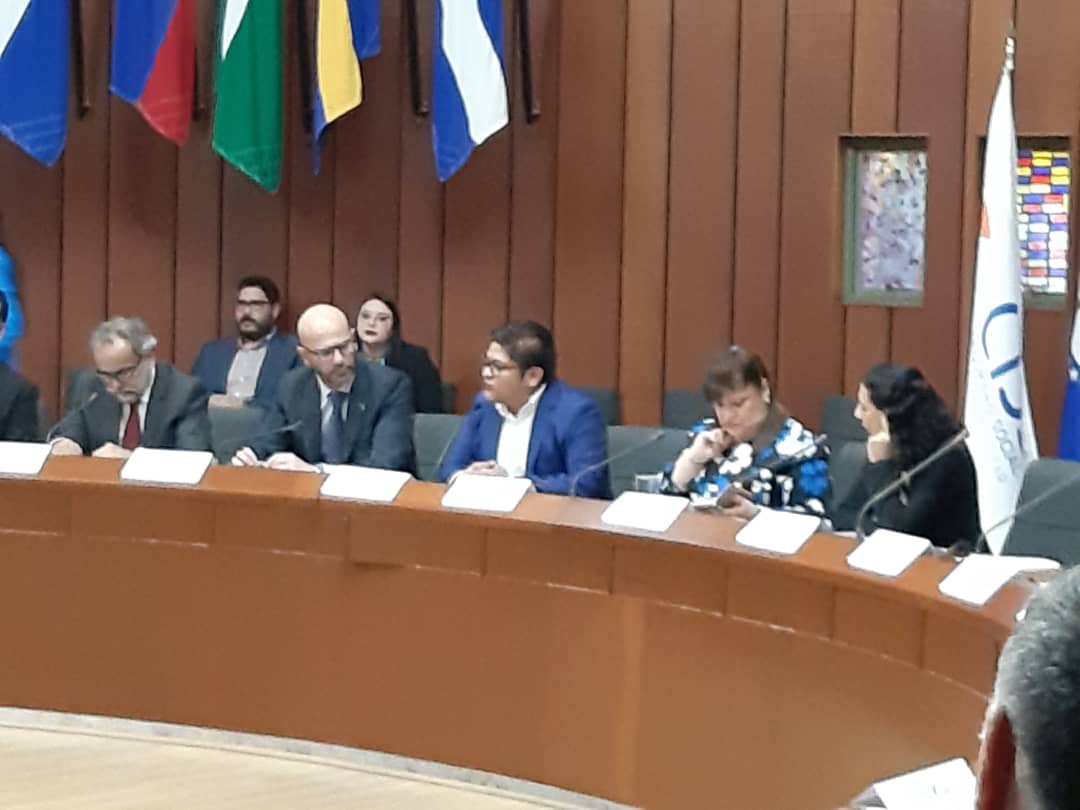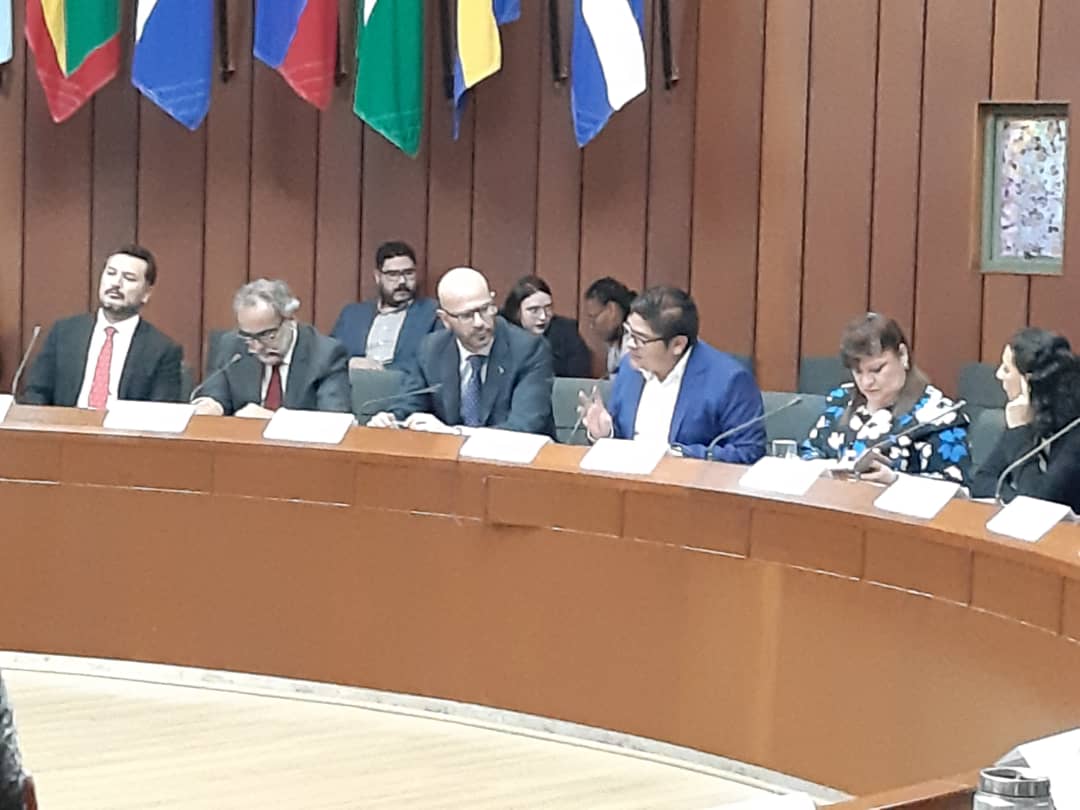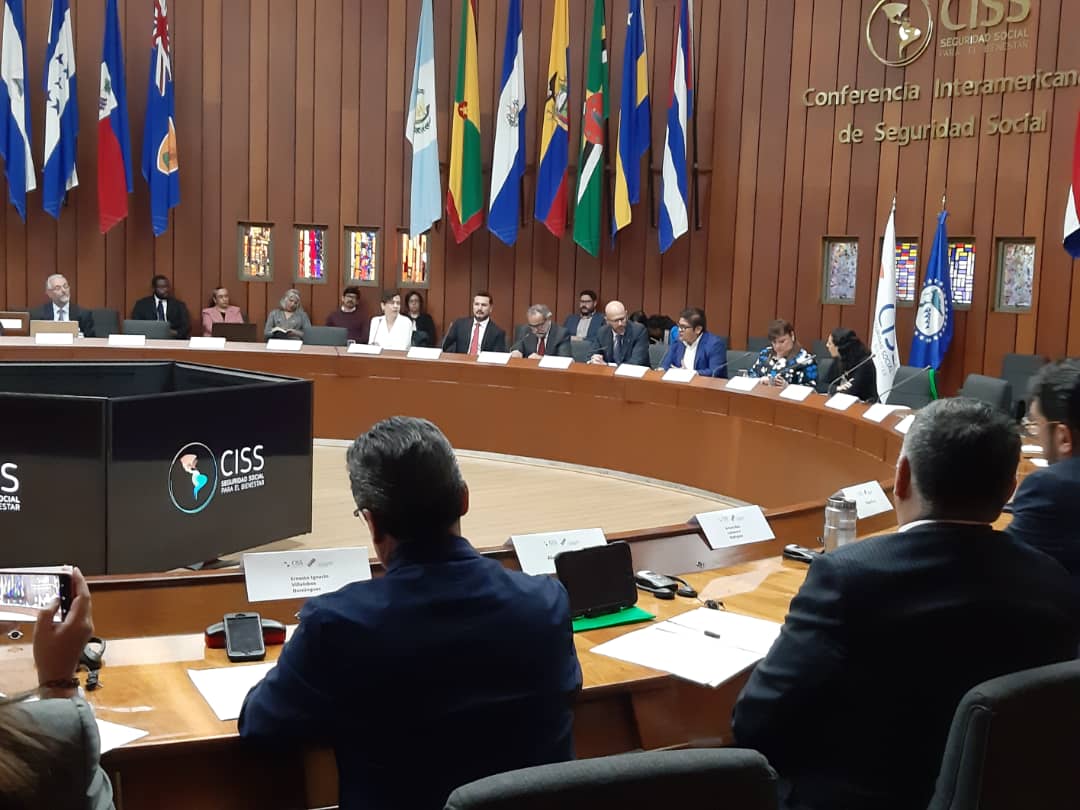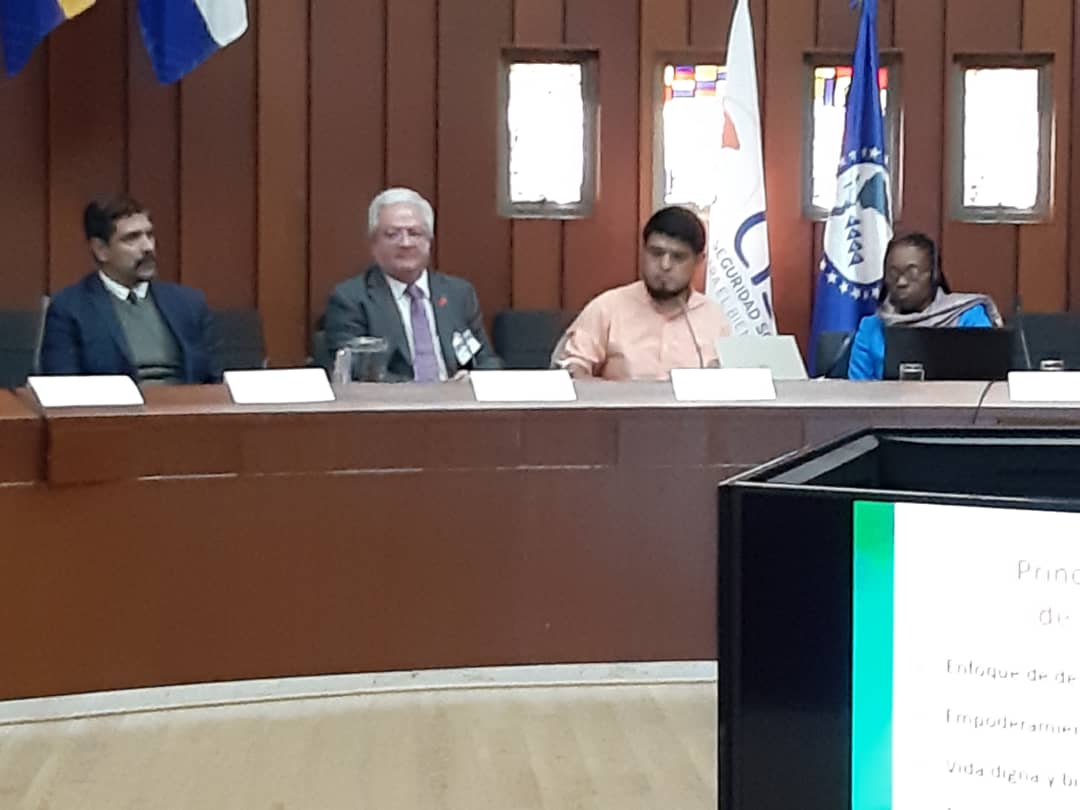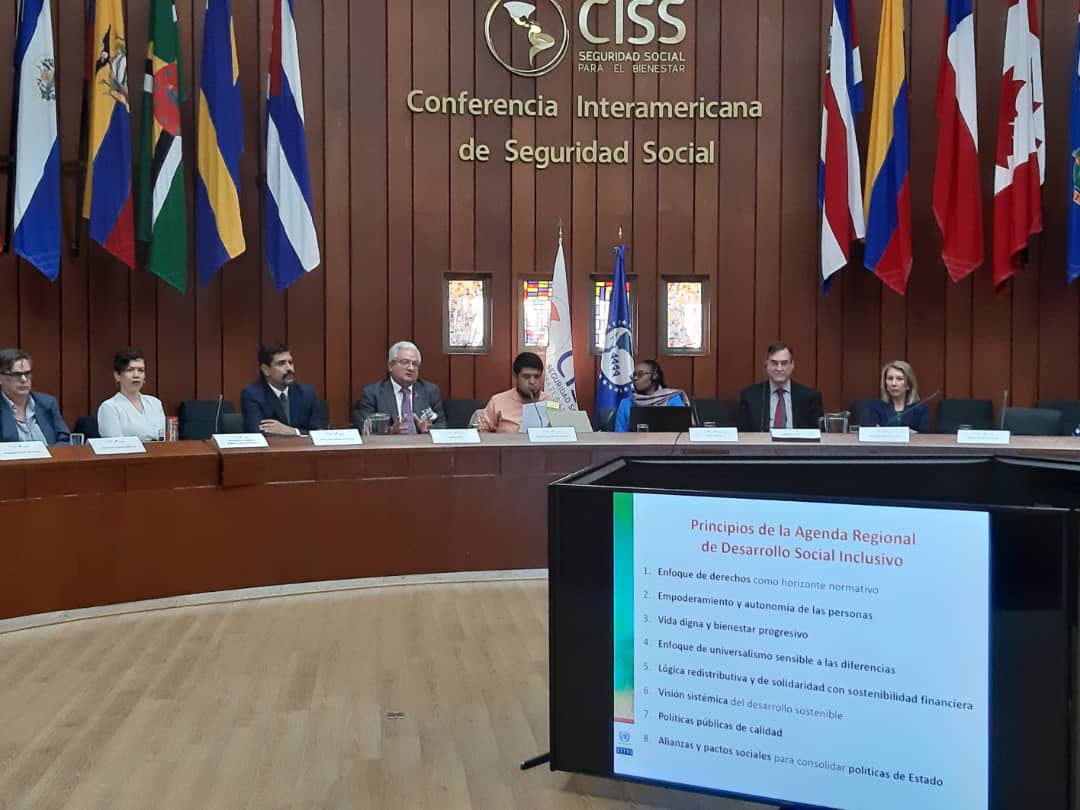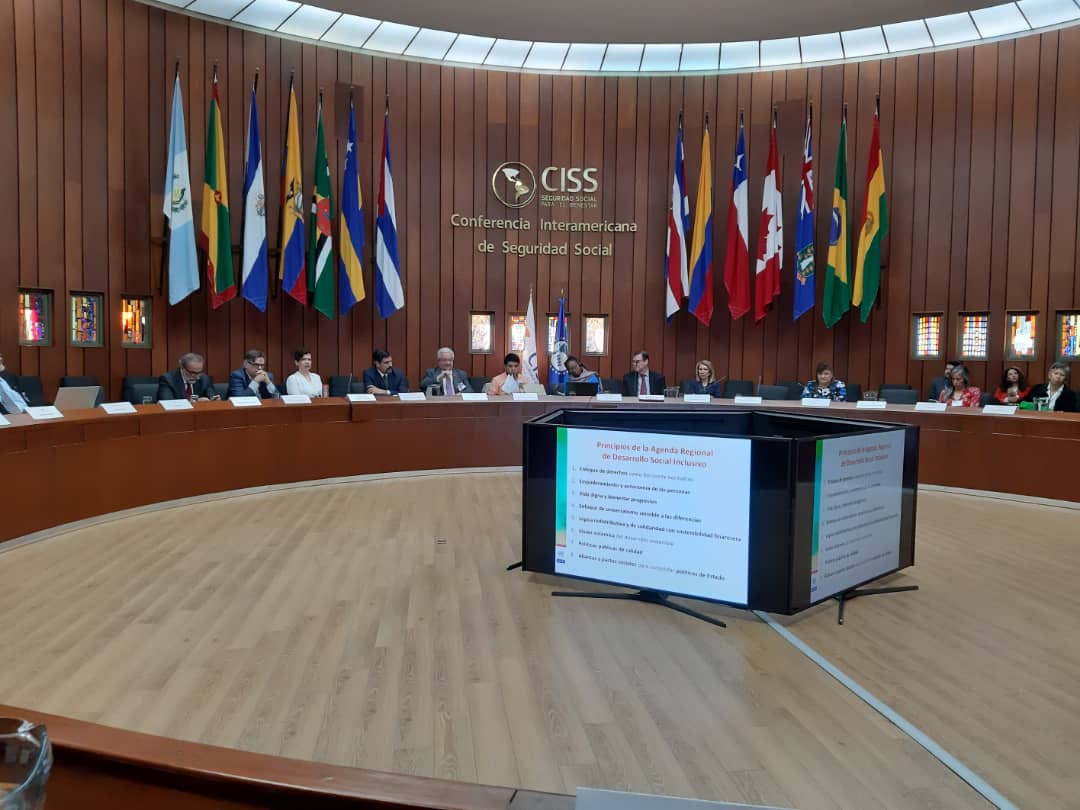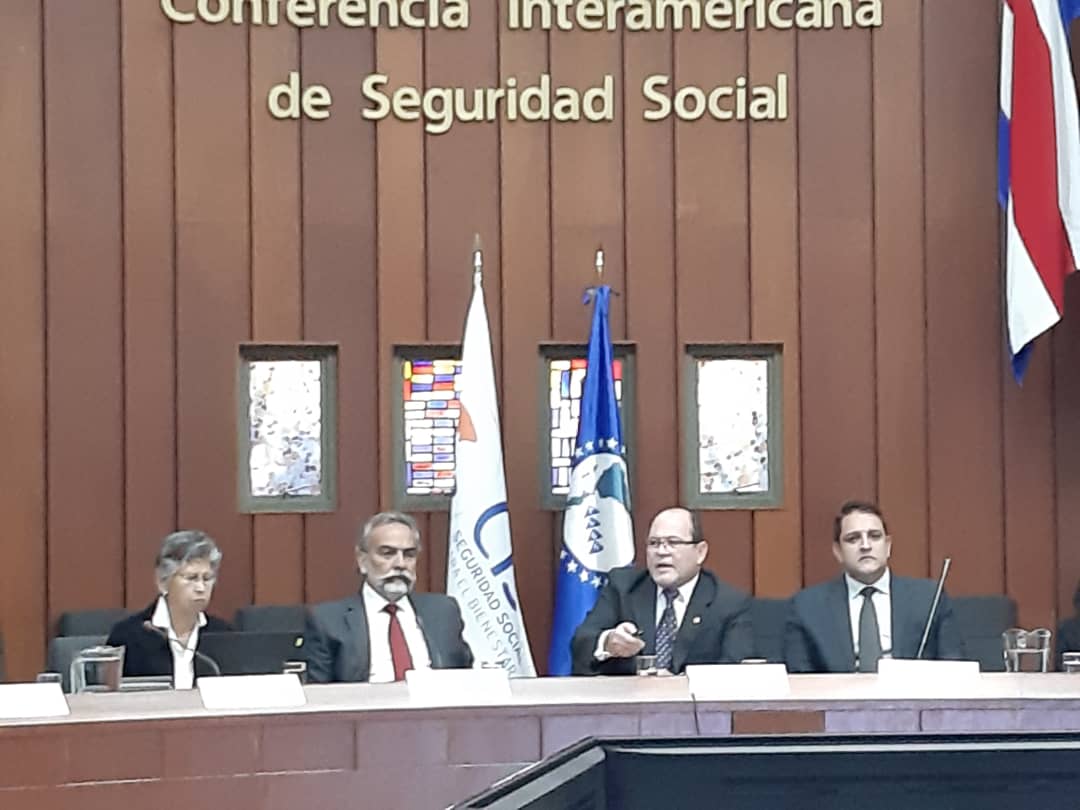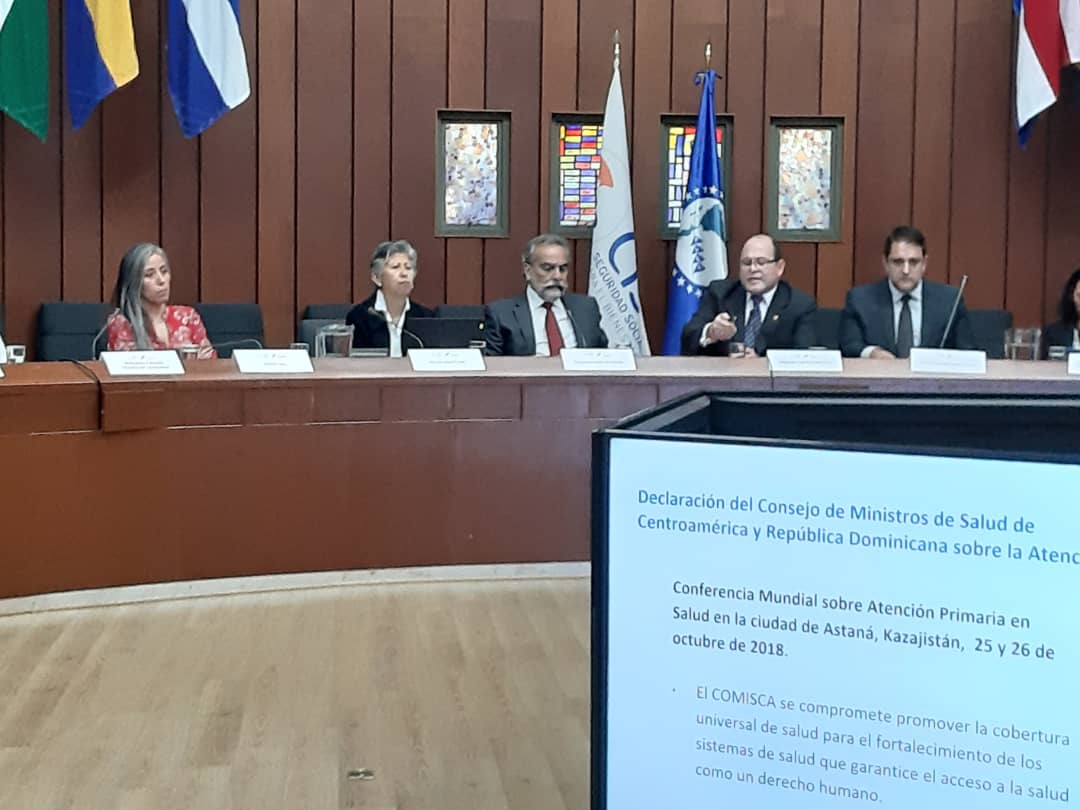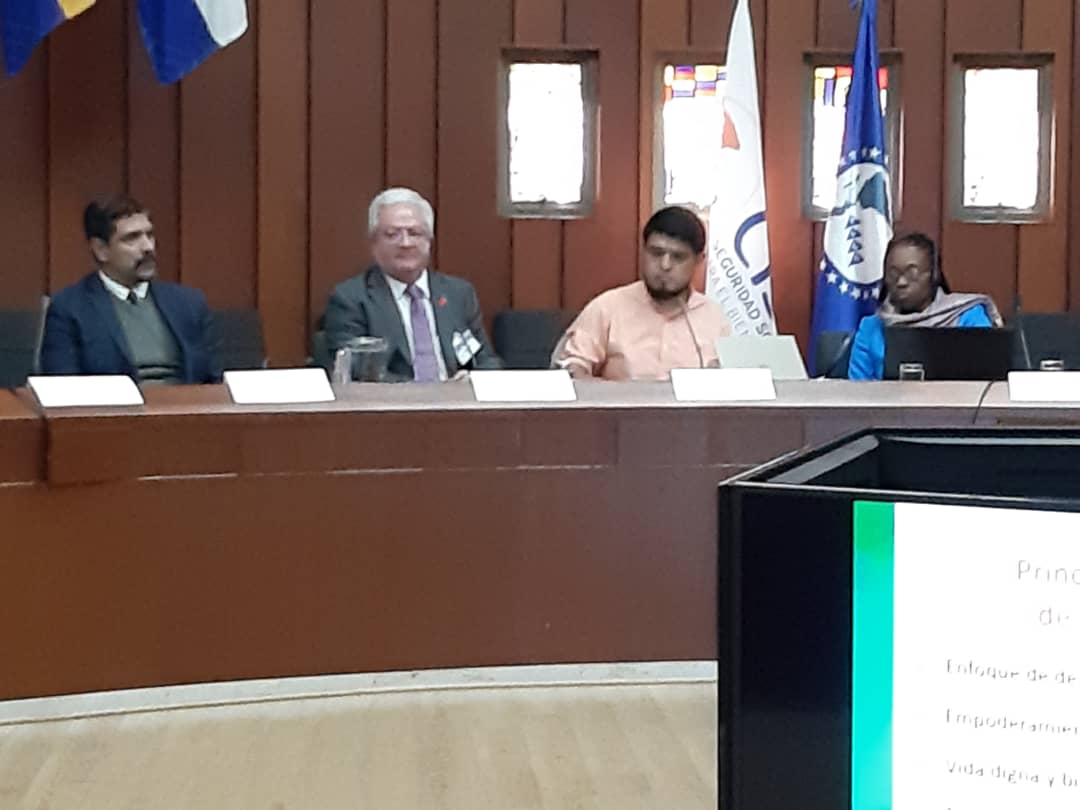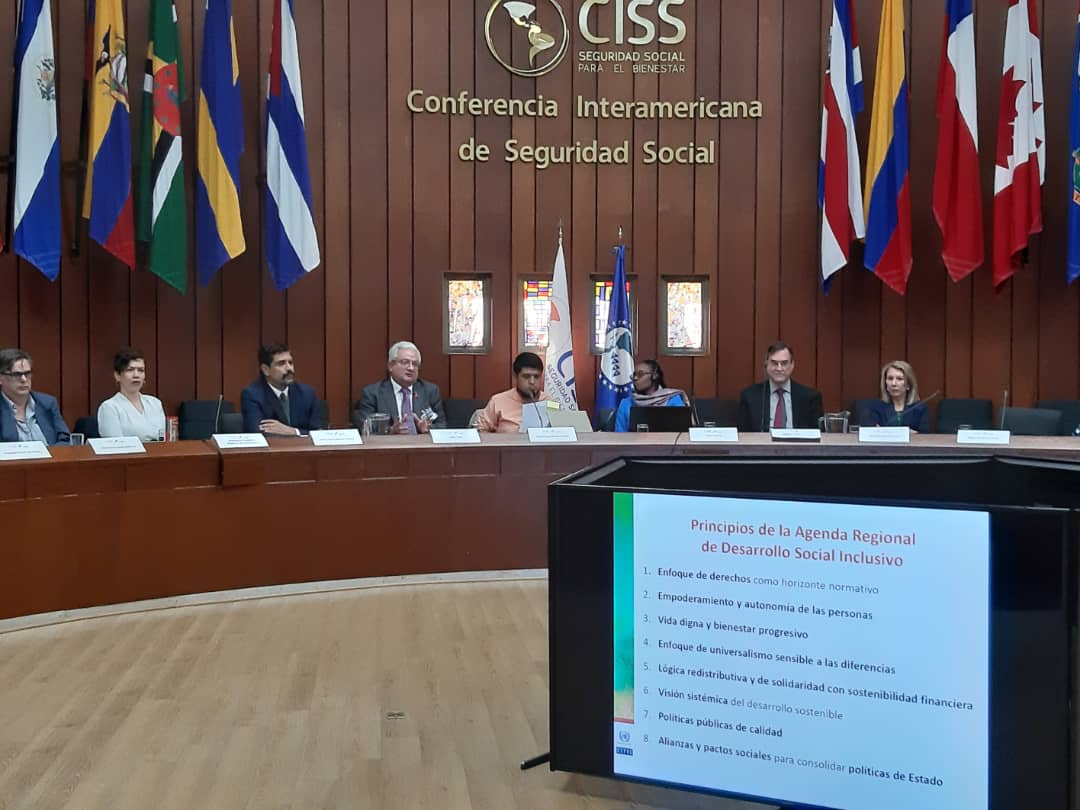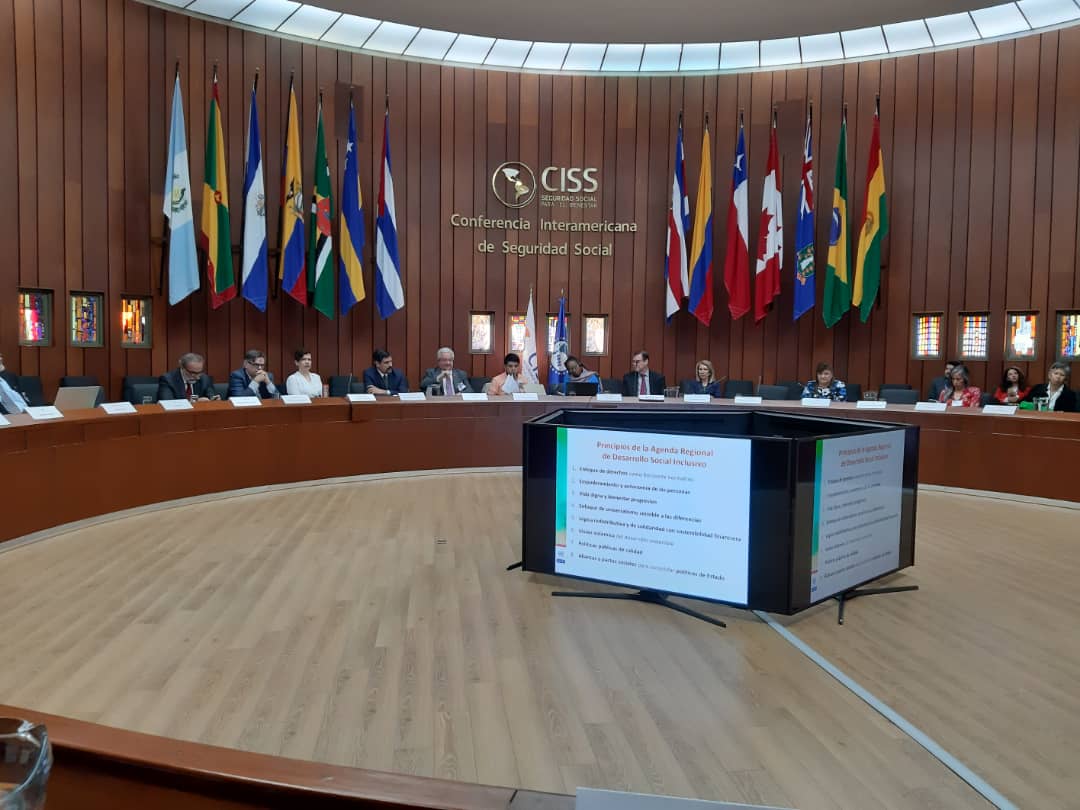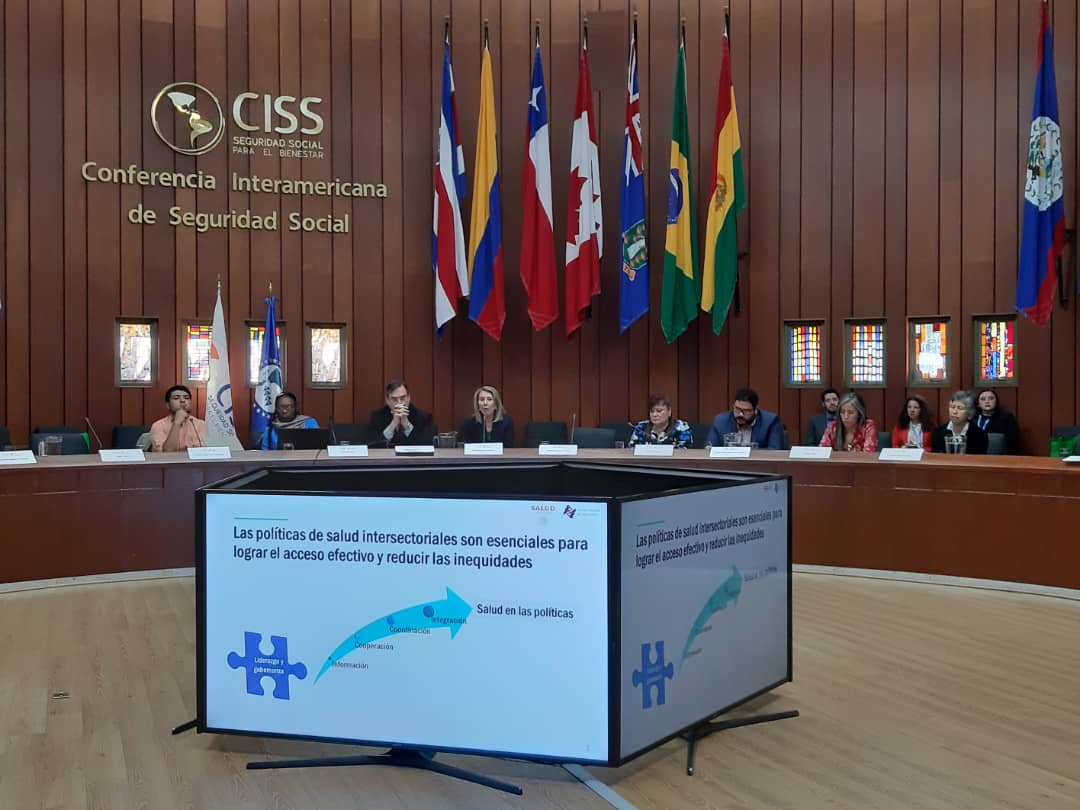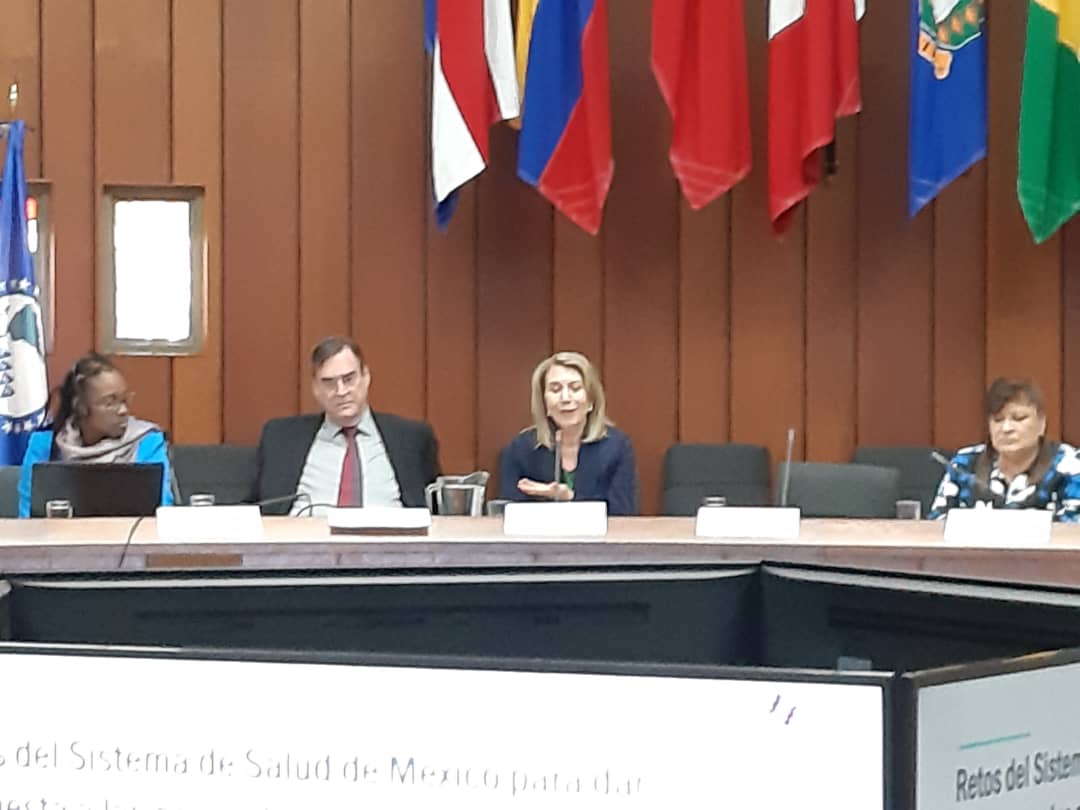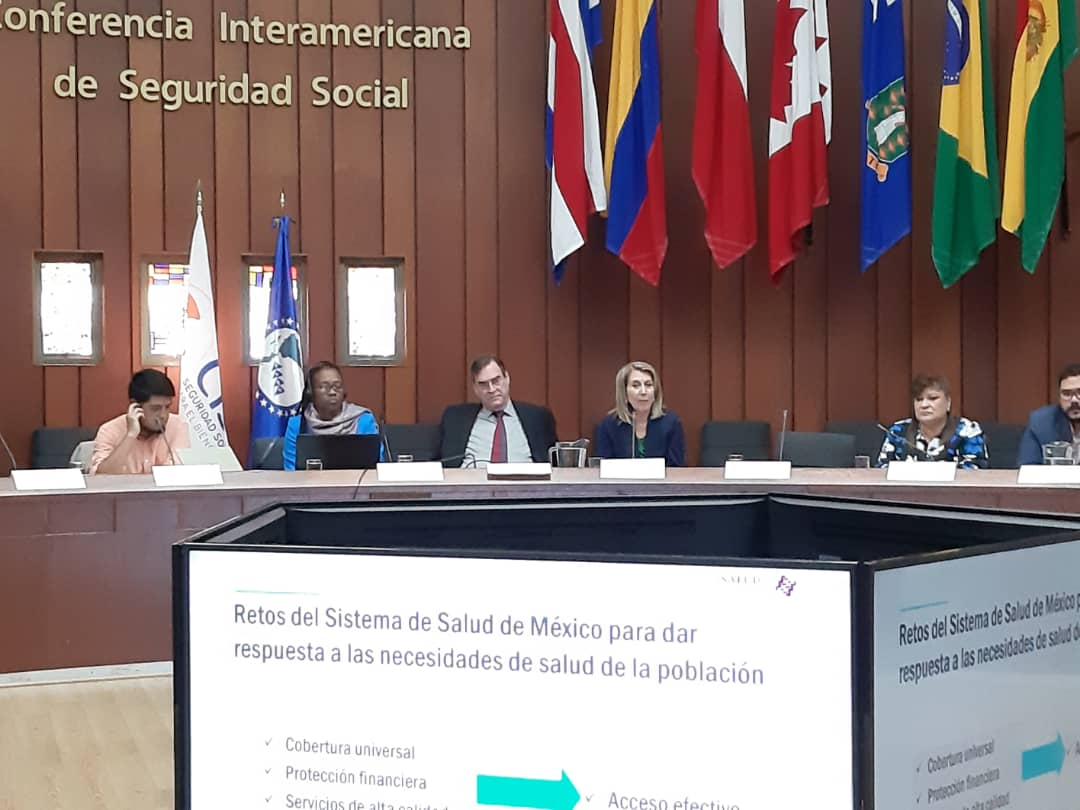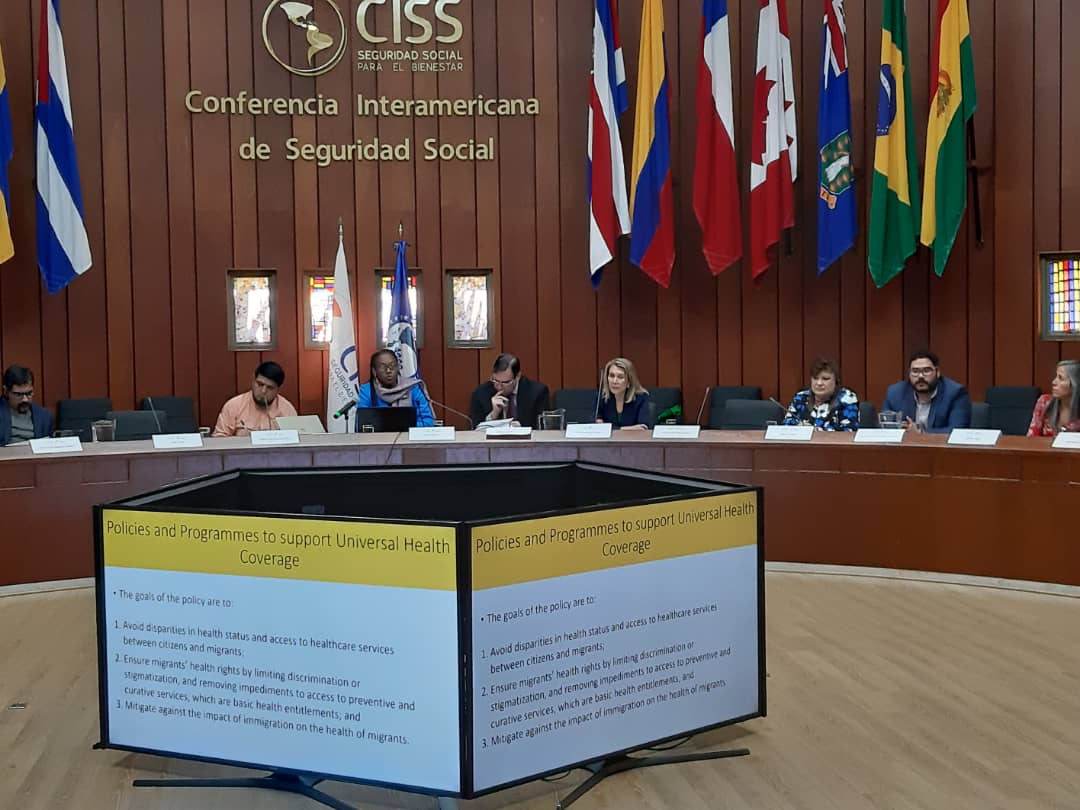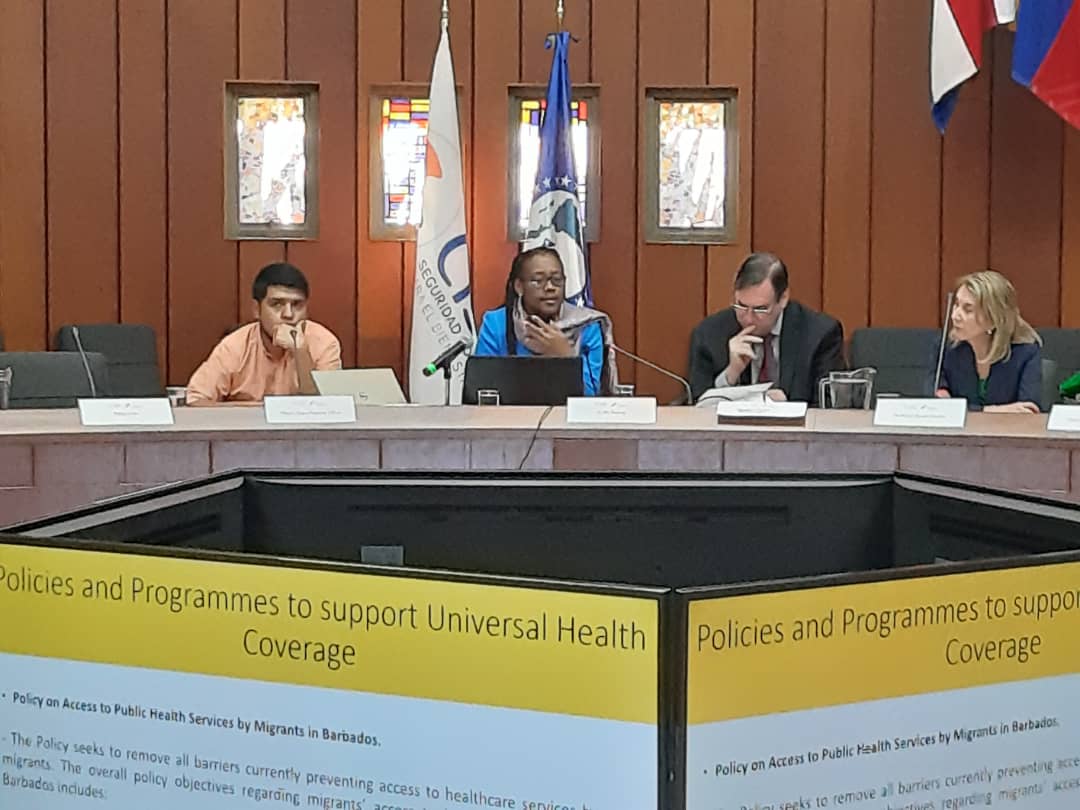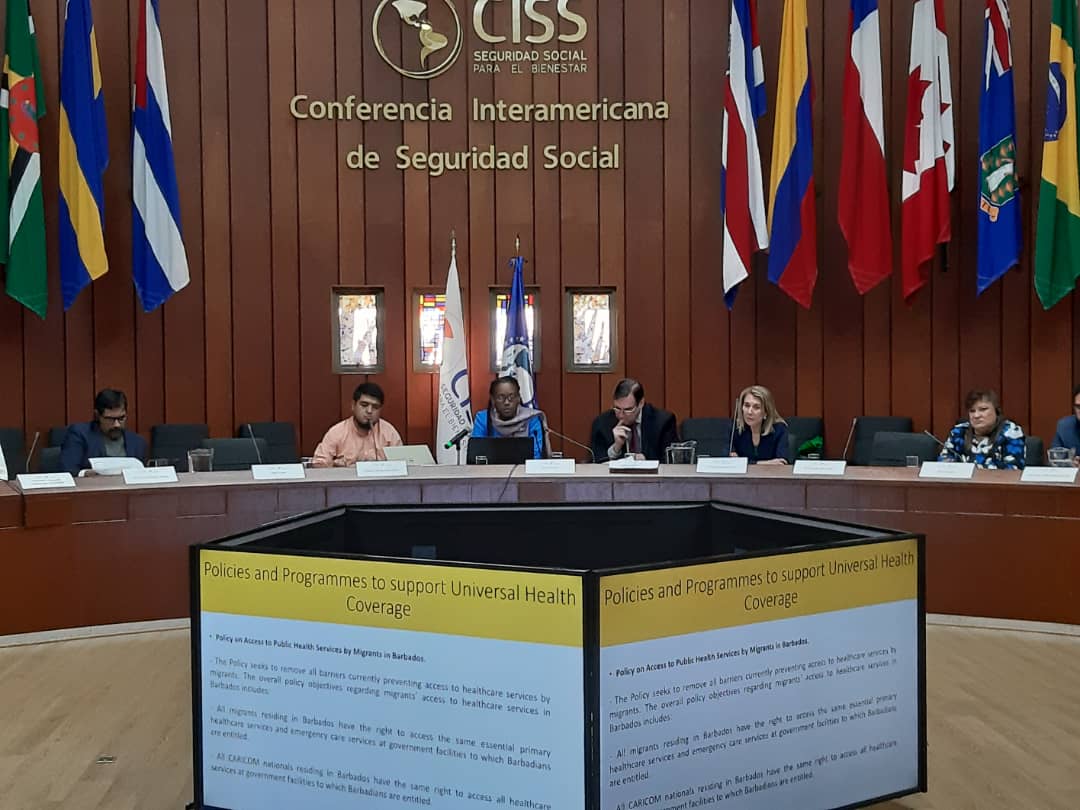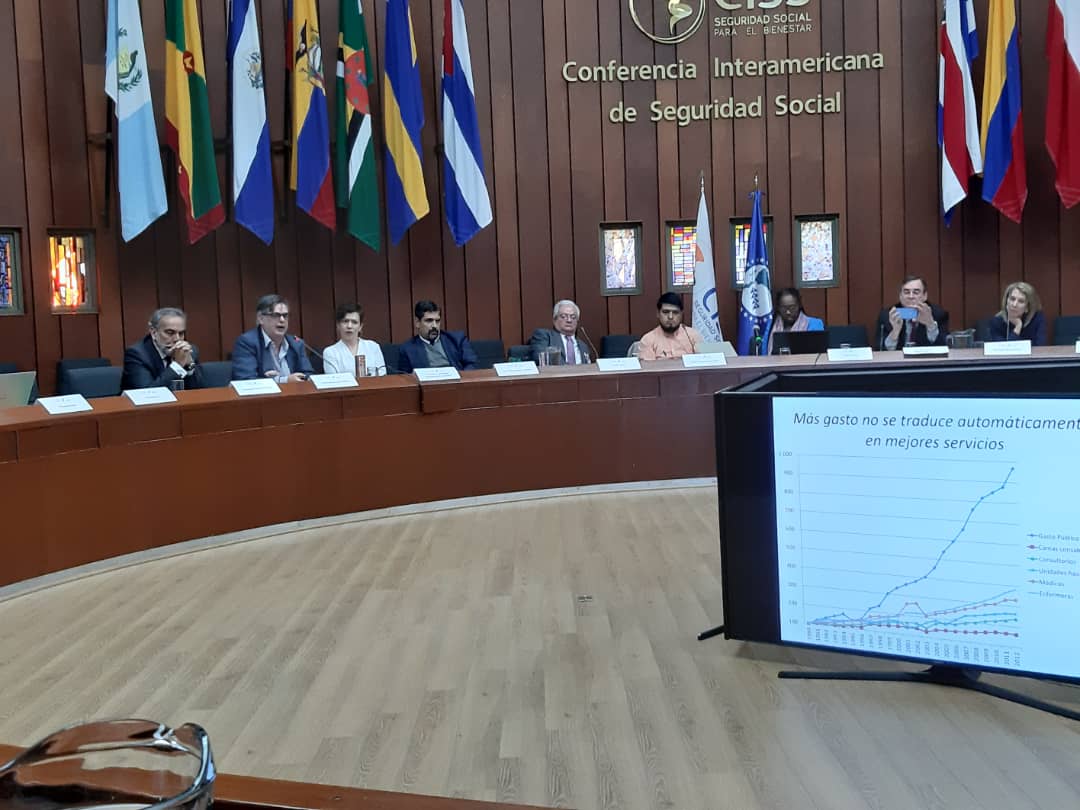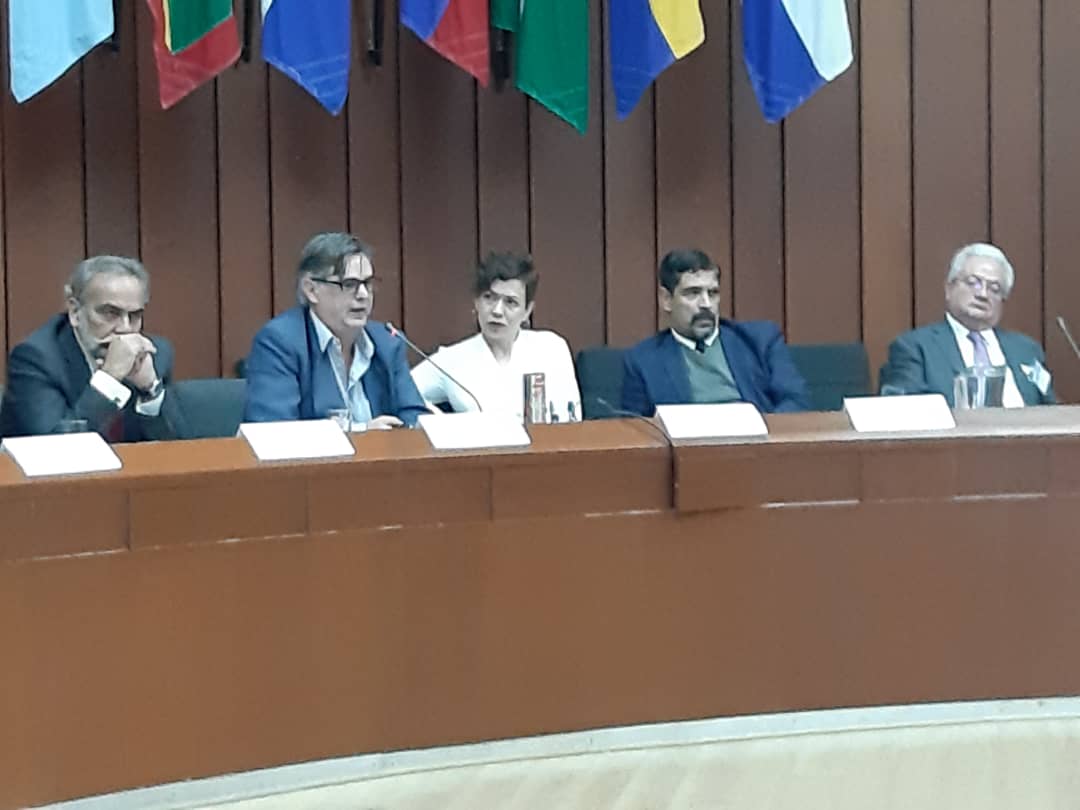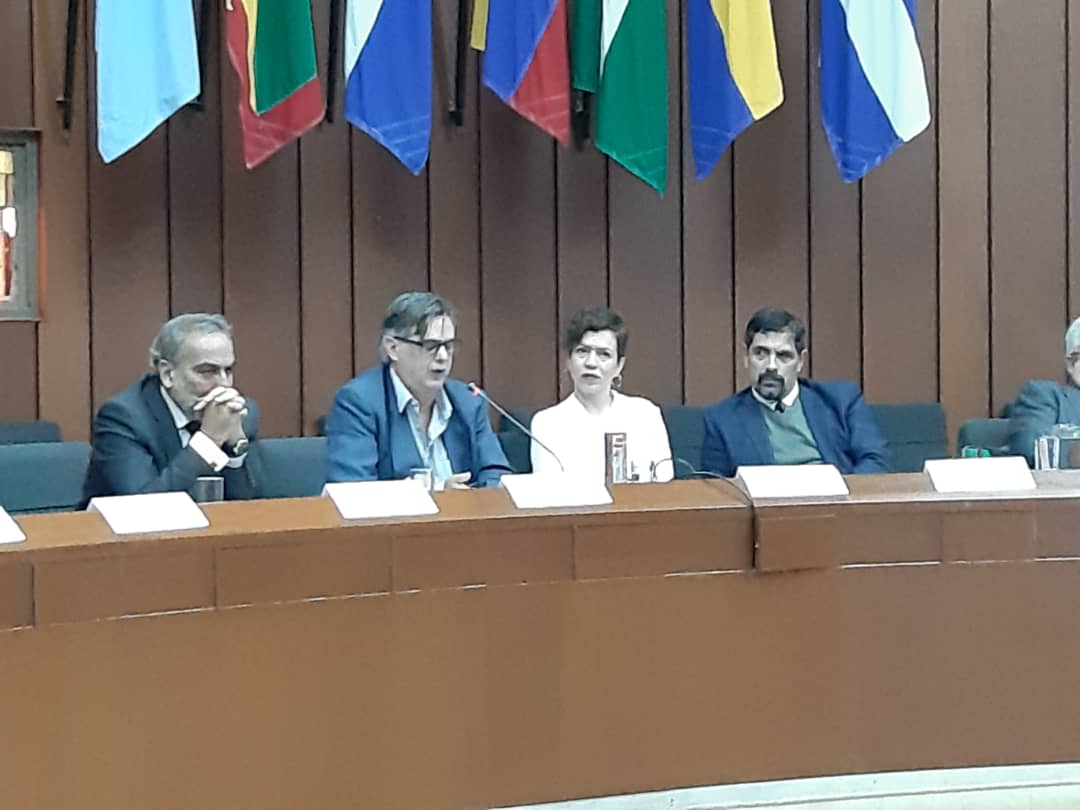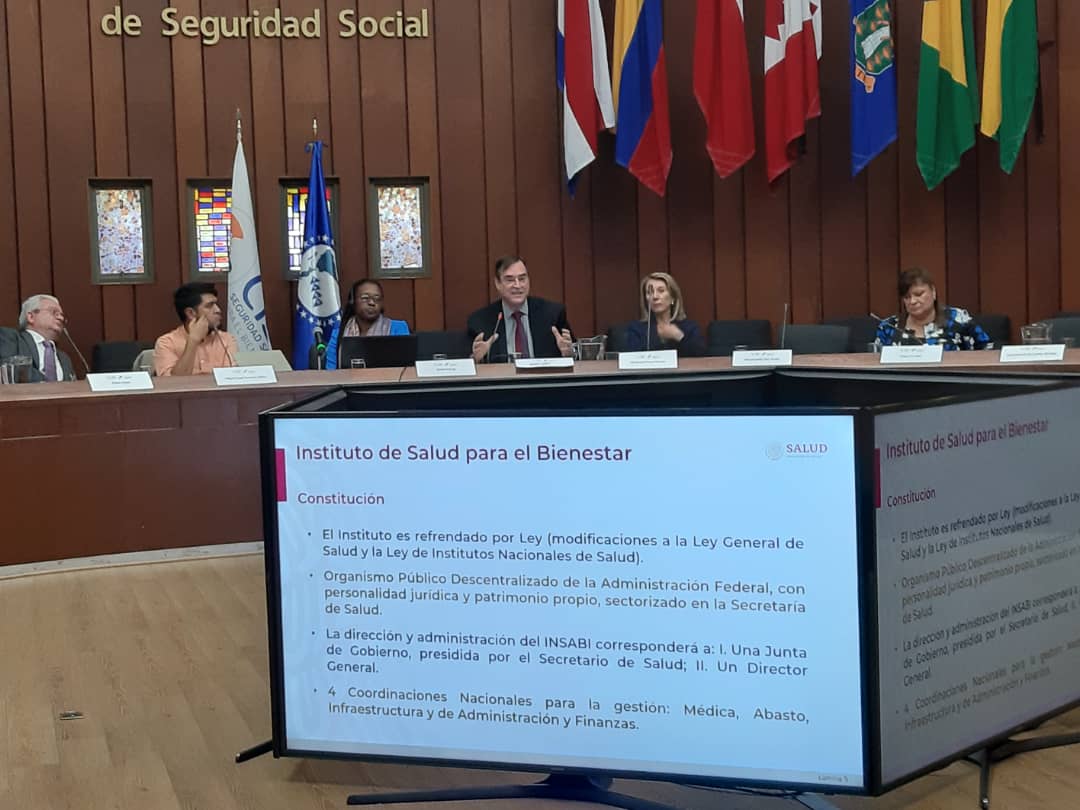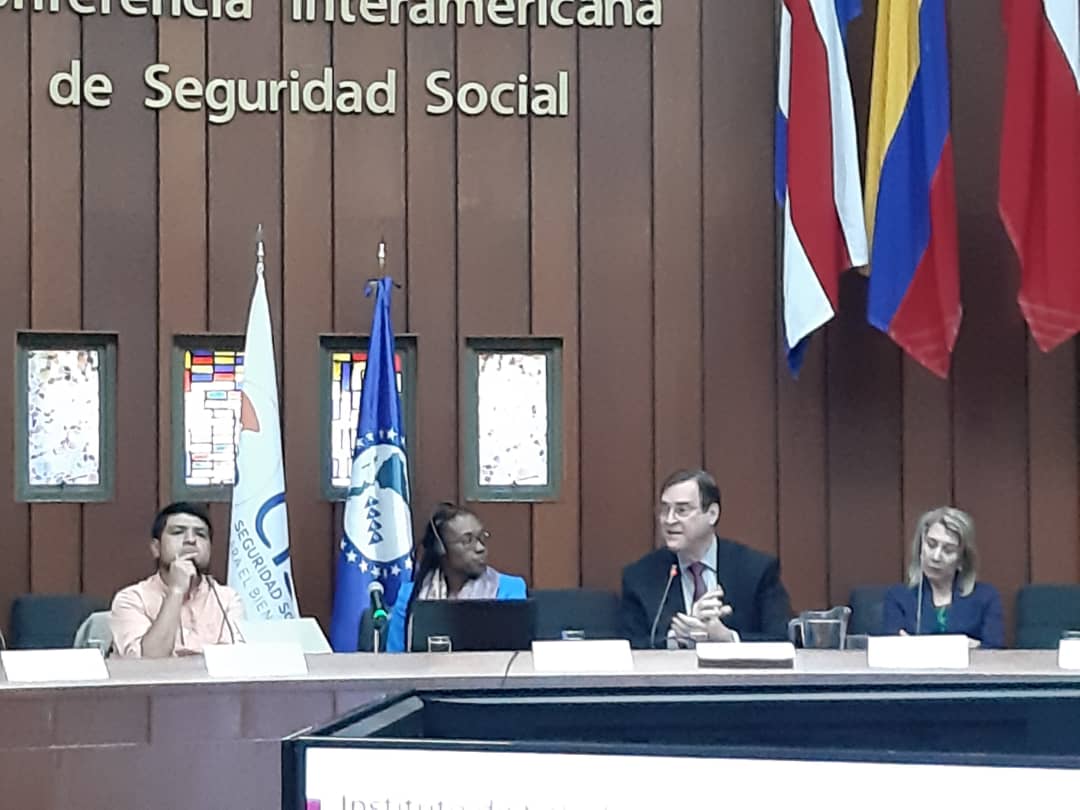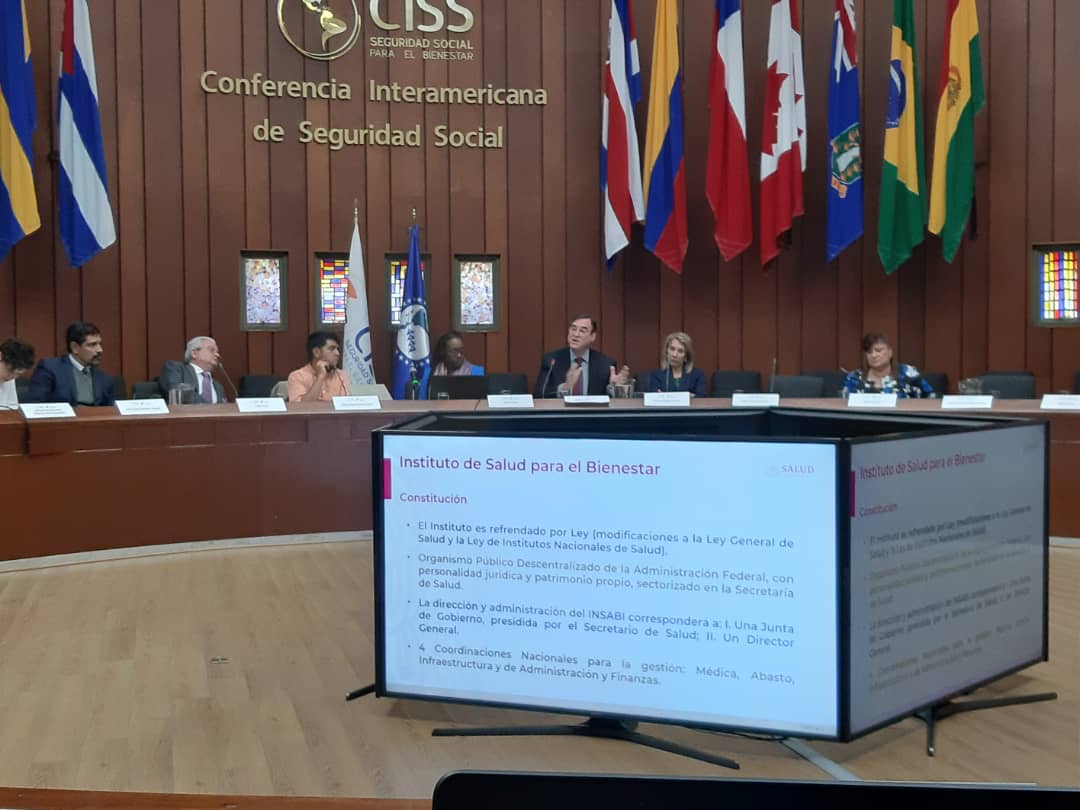introduction
SELA and the Inter-American Conference on Social Security (CISS) organized the "Seminar on universal health coverage as a mechanism to facilitate regional integration". Universal health coverage and access are pending issues within the regional agenda and a priority of the 2030 Agenda and the Sustainable Development Goals (SDGs). The main objective of this seminar was to identify the opportunities and challenges of universal health coverage and access as mechanisms to advance regional integration and strengthen the social dimension of integration through the exchange of best practices and the identification of South-South Cooperation (CSS) opportunities in the health sector.
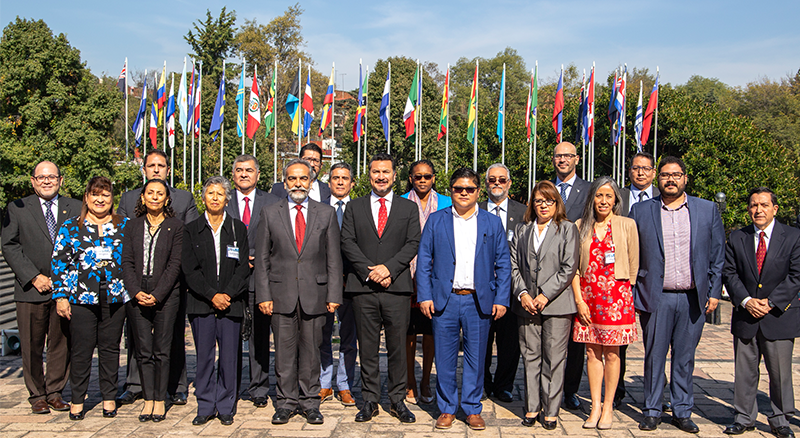
Final Report
Agenda and presentations
|
Wednesday, 27 November 2019 |
|
|
Morning |
|
|
8:30 – 9:00 |
REGISTRATION |
| 9:00 – 9:30 |
OPENING SESSION |
|
|
| 09:30 – 09:45 |
OFFICIAL PHOTO |
| 09:45 -10:00 |
COFFEE BREAK |
| 10:00– 11:00 |
SESSION I: HEALTH WITHIN THE SOCIAL DIMENSION OF LATIN AMERICAN AND CARIBBEAN INTEGRATION |
|
Moderator: Ambassador Oscar Hernández, Director of Relations for Integration and Cooperation of the Latin American and Caribbean Economic System (SELA)
|
|
|
|
This introductory session will focus on contextualizing health within the social dimension of Latin American and Caribbean integration and the initiatives that the regional and subregional institutions specialized in health have been promoting. Each participant will have 12 minutes for their intervention. |
|
|
COFFEE BREAK |
|
11:15 – 12:45 |
GENERAL DEBATE |
|
12:45 – 02:30 |
LUNCH |
|
|
|
|
Afternoon |
|
| 02:30 – 03:45 |
SESSION II: PUBLIC POLICIES TO PROMOTE UNIVERSAL HEALTH COVERAGE AND ACCESS |
|
|
Moderator: Miguel Ángel Ramírez, Researcher of the Inter-American Conference of Social Security
|
|
|
This session will focus on the analysis of public policies and programmes applied to the topic of health and their promotion as a mechanism to offer tools that provide universal health coverage and access. Each participant will have 7 minutes for their intervention. |
|
|
|
|
04:00 – 05:00 |
GENERAL DEBATE |
|
|
|
|
Thursday, 28 November 2019 |
|
|
Morning |
|
| 09:00 – 10:00 |
SESSION III: STRENGTHENING HEALTH SYSTEMS |
|
|
Moderator: Daisy Corrales, Director of the Inter-American Centre for Social Security Studies (CIESS) of the Inter-American Conference on Social Security (CISS) PANEL 1: FINANCIAL PROTECTION FOR ACCESS TO HEALTH SERVICES
|
|
|
This session will focus on analyzing the issue of financial protection of health services in Latin America and the Caribbean and how to strengthen them to provide better and more efficient services. Each participant will have 15 minutes for their intervention. |
|
|
|
|
10:15 – 11:15 |
DEBATE GENERAL |
|
11:15 – 12:15 |
PANEL 2: QUALITY IN THE PROVISION OF HEALTH SERVICES |
|
|
Moderator: Representative of the Directorate of Medical Benefits of the Mexican Social Security Institute (IMSS)
|
|
This session will be oriented to the analysis of public policies focused on improving the quality of the provision of health services in the region through the vision and experience of international and intergovernmental organizations. Each participant will have 12 minutes for their intervention. |
|
12:15 – 12:45 |
|
| 12:45 – 02:00 |
LUNCH |
|
|
|
|
Afternoon |
|
|
02:00 – 03:00 |
SESSION IV: OPPORTUNITIES FOR TECHNICAL COOPERATION IN HEALTH FOR THE AMERICAS |
Moderator: Roberto Castillo, Head of Projects Division and Technical Assistance at the Inter-American Conference on Social Security (CISS)
|
|
|
|
This session will allow gathering the main points of view of different organizations regarding the issue of universal health access and coverage to achieve greater technical cooperation in that area in the Latin American and Caribbean region and identifying the options in this regard to achieve a regional interaction. Each participant will have 15 minutes for their intervention. |
|
|
|
| 03:30 – 03:45 |
COFFEE BREAK |
| 03:45 – 04:15 |
CONCLUDING SESSION |
|
|
|
This session will allow gathering the main points of agreement and consensus among participants, identifying lines of action and inter-institutional joint work that will strengthen the cooperation and integration relations in the region in terms of universal health access and coverage. Each participant will have 7 minutes for their intervention |
|
| 04:15 – 04:45 |
CLOSING SESSION |
|
|
Background
The Latin American and Caribbean countries have designed institutional mechanisms that enable better coordination of matters of interest to the region, especially through integration systems and international organizations. These initiatives, which require better cohesion and monitoring, have not yet reached the level of political and economic integration that has been achieved in other parts of the world, such as the European Union or ASEAN.
In this connection, the integration process in Latin America and the Caribbean has the peculiarity of having subregional segmentations and responding to commercial issues over political ones, in addition to addressing social integration with special emphasis on border areas. Over the last 25 years, efforts have been made to promote initiatives that improve the living conditions of the inhabitants of the region through a broad social welfare policy approach, as a result of the economic growth that benefitted Latin America and the Caribbean and has allowed the region to address, thanks to the financial contribution of countries, the extensive socio-economic inequalities afflicting the continent.
Despite the economic and commercial progress, inequalities in the area of health persist, both at the country and regional levels. This has led to the need for the national health systems of the countries in the region to develop solutions that can respond to this problem without compromising the political and financial sustainability of governments. At present, it remains a pending issue on the regional development agenda.
Some achievements in this area have been achieved through universal health coverage (UHC), which has been at the centre of the global public health agenda recently. Its adoption allows national health systems to have mechanisms for cost-effective evaluation of health inequities. An example of this is the momentum that the World Bank (WB) generates in the subject, when adopting UHC as one of the fundamental pillars in its mission to eradicate extreme poverty by 2030. In addition, the Pan American Health Organization (PAHO) adopted in 2014 a regional strategy for UHC, which reflects the commitment, among the PAHO Member States, to strengthen national health systems and ensure that they provide quality services, ensure financial protection for users and promote public policies that address the socio-economic determinants that have an impact on health systems in the region.
Achieving universal health coverage (UHS) by 2030, as set forth in the Sustainable Development Goal (SDG) Number 3: Good health and well-being, and complying with Goals 3.7: “By 2030 ensure universal access to sexual and reproductive health care services, including for family planning, information and education, and the integration of reproductive health into national strategies and programs” and 3.8: “Achieve universal health coverage, including financial risk protection, access to quality essential health-care services and access to safe, effective, quality and affordable essential medicines and vaccines for all”, will require Latin American and Caribbean countries to join efforts and undertake to design and implement the best institutional and public policy mechanisms, which will inevitably require better coordination and cooperation among the countries in the region, in order to harmonize actions and strategies.
This meeting was expected to contribute to the reflection on the subject, the promotion of cooperation spaces and synergies, as well as the establishment of agreements that ensure, in accordance with the provisions of the 2030 Agenda for Sustainable Development, that nobody is left behind in the access to equitable, timely and quality health systems in the region.
Contacts
Permanent Secretariat of the Latin American and Caribbean Economic System (SELA). Direction of Relations for Integration and Cooperation:
Contacts:
- Ambassador Oscar Hernandez
Director of Relations for Integration and Cooperation - Javier Gordon Ruiz
Coordinator of Relations with Regional and Extra-Regional Organizations
E-mail: jgordon@sela.org - Samuel Díaz
Analyst of Relations
E-mail: sdíaz@sela.org
Inter-American Conference on Social Security (CISS)
Contacts:
- José Antonio Hernández
General Coordinator
E-mail: antonio.hernandez@ciss.net - Monica E. Nuño Nuño
Coordinator of Relations with International Organizations
E-mail: monica.nuno@ciss.net
Informative guide
Information on migration
To enter Mexico, participants must complete all immigration procedures.
Foreigners are required to present a valid and unexpired passport.
Foreigners who have passport and one of the following documents do not require Mexican visa:
- Valid and unexpired multiple entry US visa
- Permanent Resident Card of Canada, the United States, Japan, the United Kingdom or any country that belongs to the Schengen area.
- Travel card for businessmen (APEC Business Travel Card (ABTC)), adopted by Mexico.
If you want to know if you need a visa to enter Mexico, the Web site of the National Institute of Migration of Mexico (https://www.gob.mx/inm) includes an updated list with the above information. To access it, click here.
Logistics
Venue and date
Seminar on universal health coverage as a mechanism to facilitate regional integration
Venue: Headquarters of the Inter-American Conference on Social Security (CISS)
Mexico City, Mexico
Date: 27 and 28 November 2019
Languages
The official languages for the event will be Spanish and English. There will simultaneous interpretation.
Hotels
Hotel of the Convention Centre of the Inter-American Conference on Social Security (CISS)
San Ramón s/n.
Col. San Jerónimo Lídice,
C.P. 10100 – Mexico City
If you require further support, please contact at SELA:
Mrs. Cora Romero
Official of Travels and Arrangements
Administration Management, Personnel and General Services
Permanent Secretariat
Telephone: +58(212) 9557111 y 9557124
Fax: +58(212) 9516901 y 9515292
E-mail: cromero@sela.org
Dress code
Formal attire.
Transport
We recommend our guests to use the taxi service offered by the hotel or safe taxi lines.
Objectives
The objectives of this Regional Meeting are as follows:
- Share a vision of policies and programmes for universal health coverage in Latin America and the Caribbean;
- Assess the role of regional infrastructure and governance that ensures universal health coverage in Latin America and the Caribbean; and,
- Identify opportunities for South-South Cooperation (CSS) in the health sector as a mechanism to promote regional integration
Participants
Participation in this event is subject to the invitations forwarded by the co-sponsors.
This Meeting is mainly aimed at the national authorities responsible for health policies in the Member States of SELA, representatives of regional and international organizations, experts in the field and scholars who study social dimension problems related to universal health coverage and access.
Sponsors and collaborators
Videos
November 27:
Parte 1.- https://www.youtube.com/watch?v=3nzCAGJtBU0
Parte 2.- https://www.youtube.com/watch?v=rVhLSWB14d8
November 28:
Parte 1.- https://www.youtube.com/watch?v=8sQ0L4TBxC4
